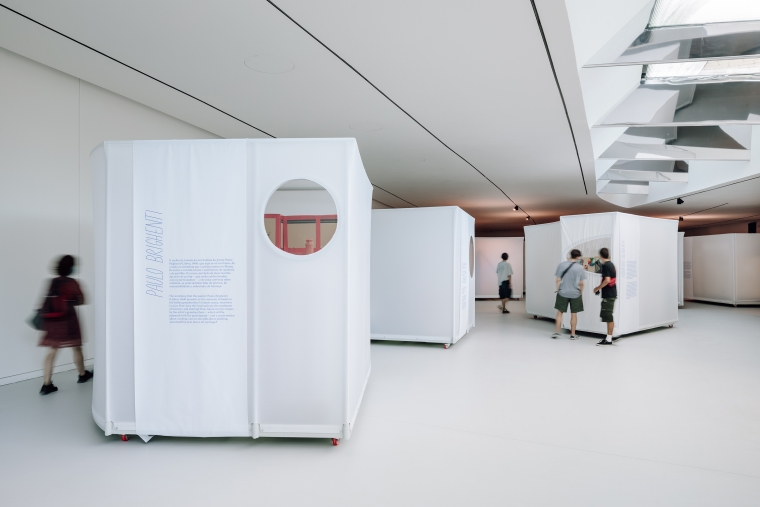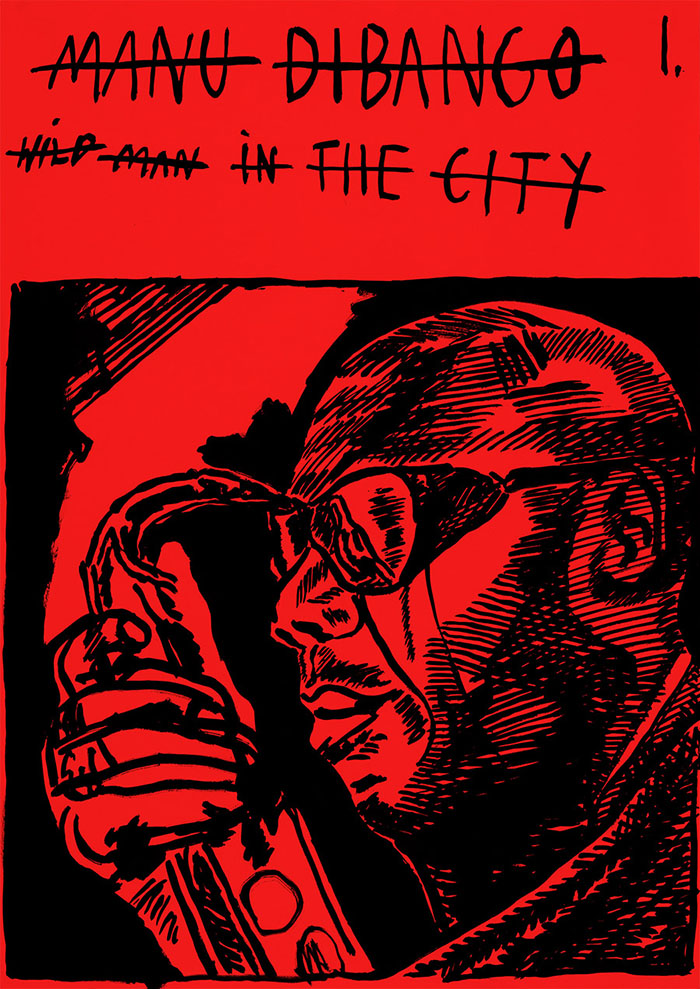
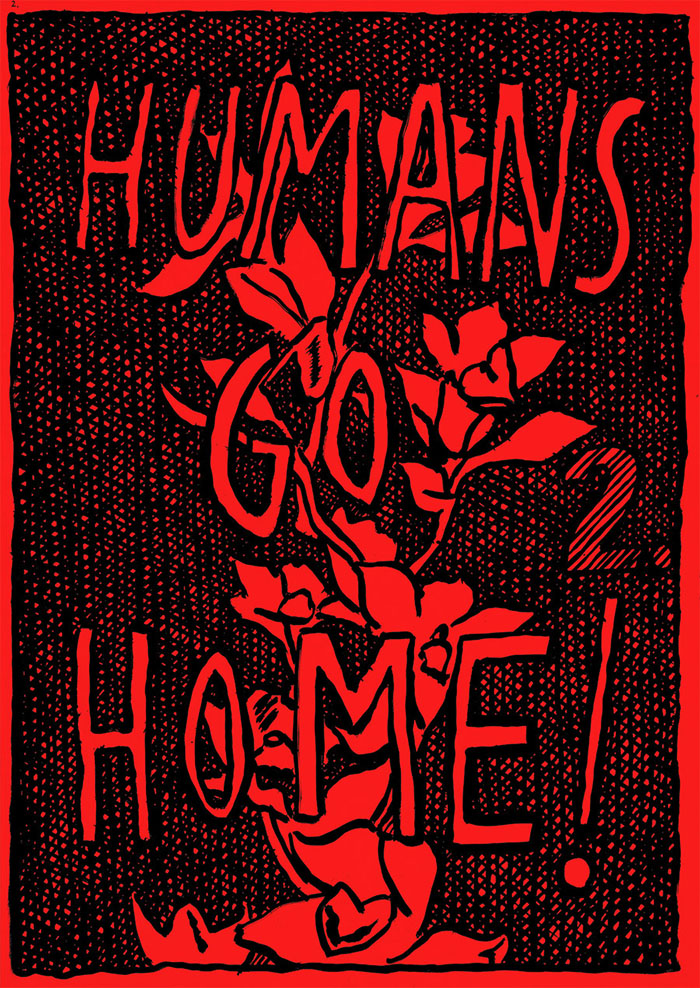
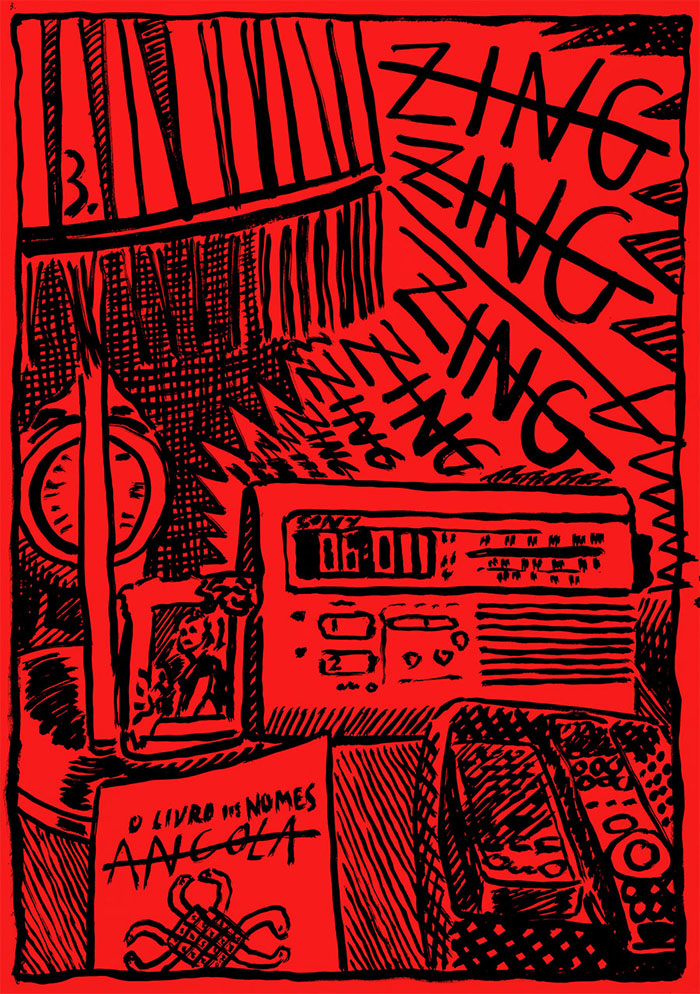
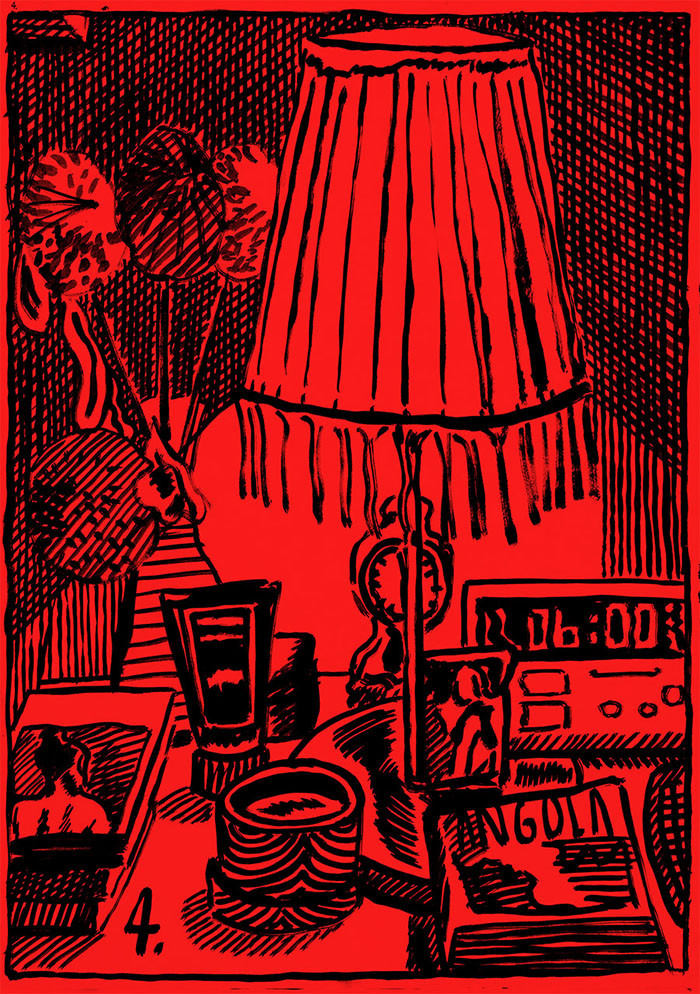
In the Kimbundu language, the word "maka" refers to a conversation, a subject that causes disagreement, a discussion with an instructive end. Initially, when Francisco Vidal and I started developing a discourse – one that was conceptual, visual, social – around the acronym MAKA, we were guided by the idea of, under the banner of artistic practice coupled with the diversity of our own roots, creating a space of expression – ethical and aesthetic, utopian and symbolic – designated “Museu de Arte e Kultura Africana” (Museum of African Art and Kulture). With the evolution of the projects that gave shape to MAKA – LUUanda Rising, Kiekelela, Nova Angola, Padrão Crioulo, Fronteiras Invisíveis, Paisagens Contemporâneas, among others –, we realised that this laboratory of reflection which we sought to create, in a dimension of presentation vs representation – artistic, cultural, social, educational –, should extend beyond the designation of a museum, since the urgency of the present is precisely to challenge the canons, decolonise thought, overturn archetypes, deconstruct codes and (pre)conceptions, in the sense of creating new narratives that celebrate equality, inclusivity, diversity and representativity. Preserving the legacy and Memory inherent to the concept of Museum, it proved inevitable to amplify this space of expression vs reflection to allow us to, in a more immediate and uplifting way, act on a present Moment in consequence of the Movement vs Manifesto one wants to bring about in this shift to a new contemporaneity. It was thus that the acronym MAKA evolved organically to take on all the forms and spaces that might give it voice: Museum × Memory × Movement × Manifesto × Moment of African Art and Kulture.
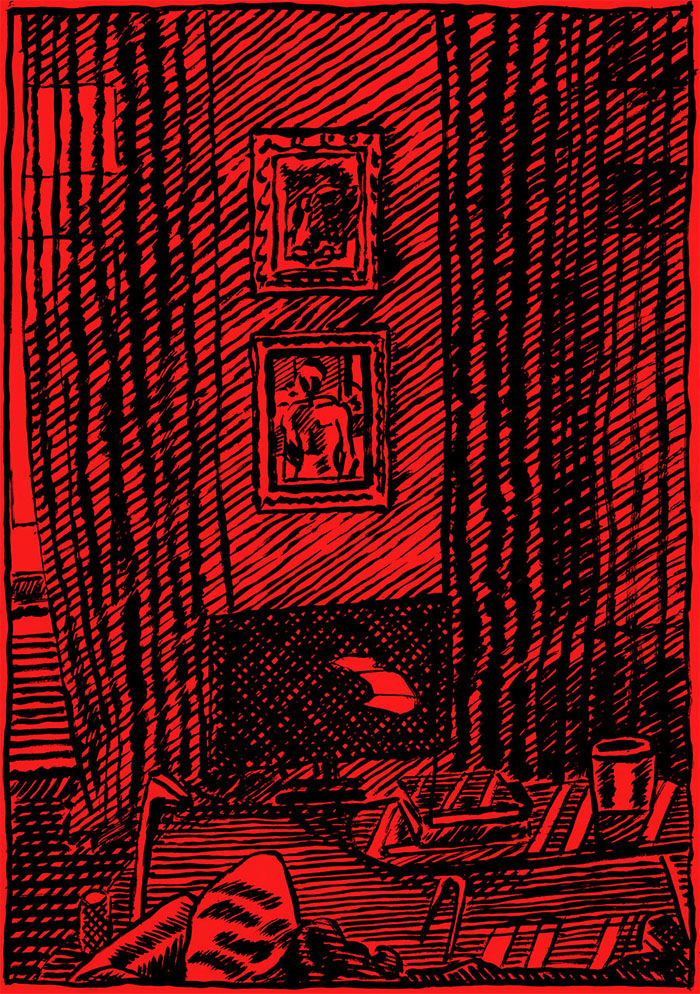
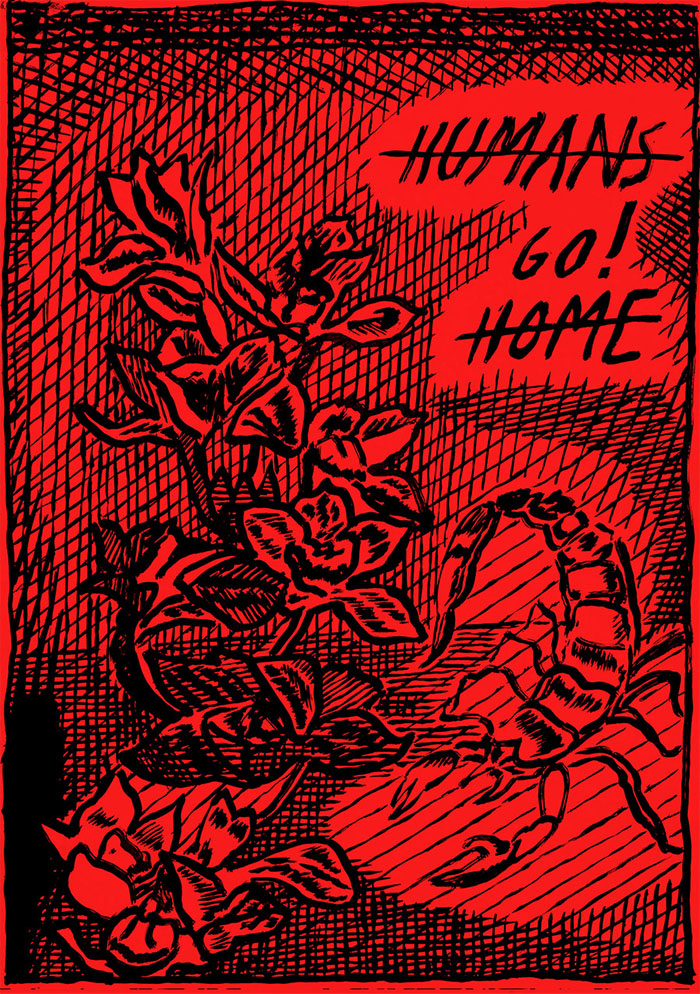
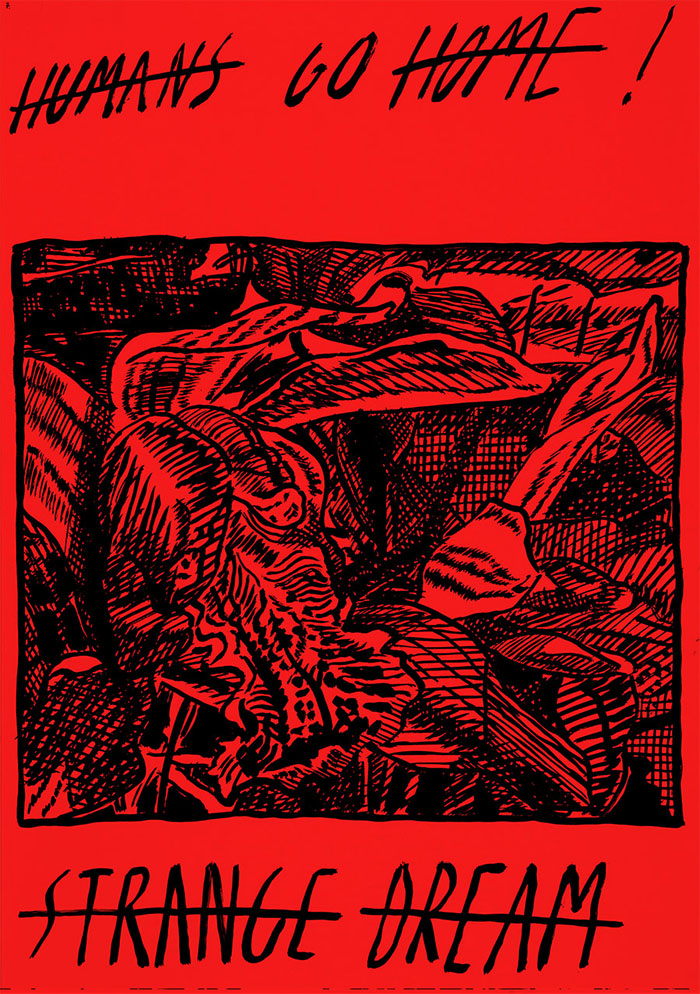
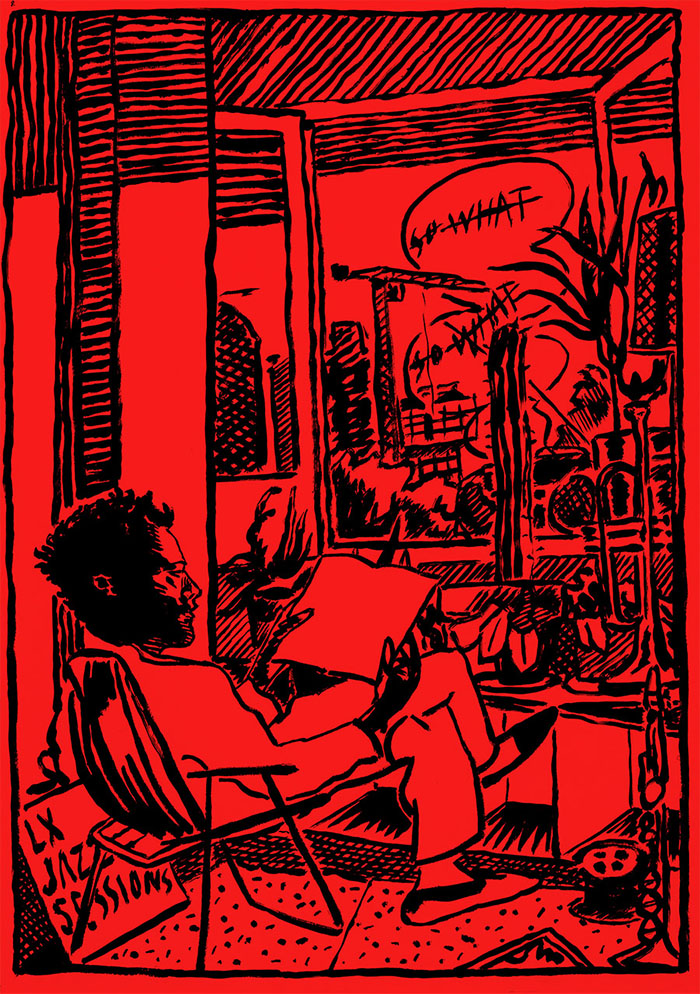

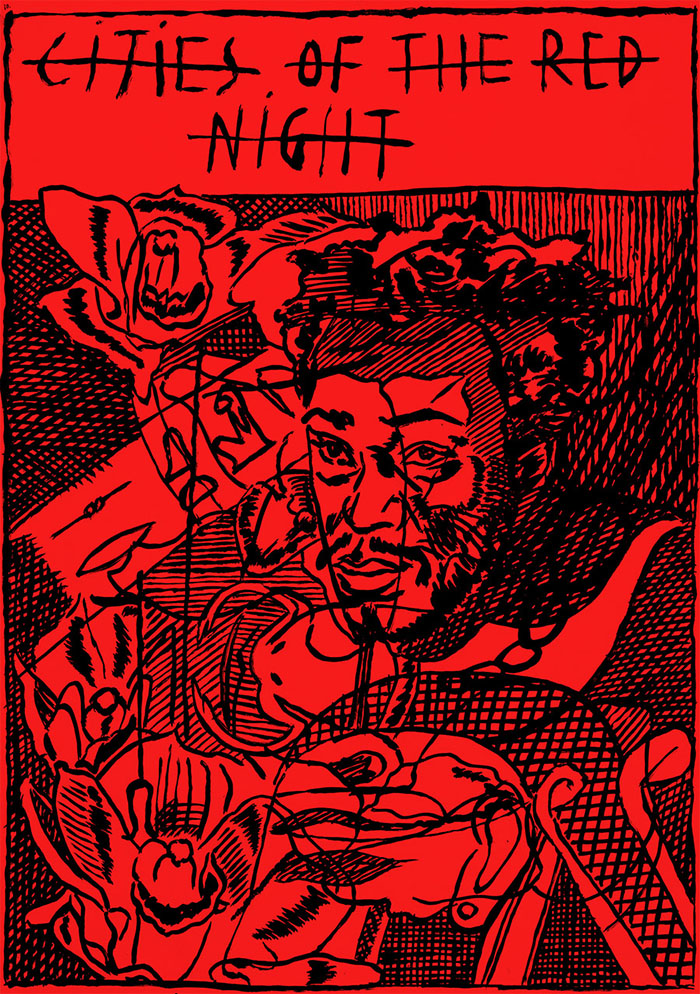
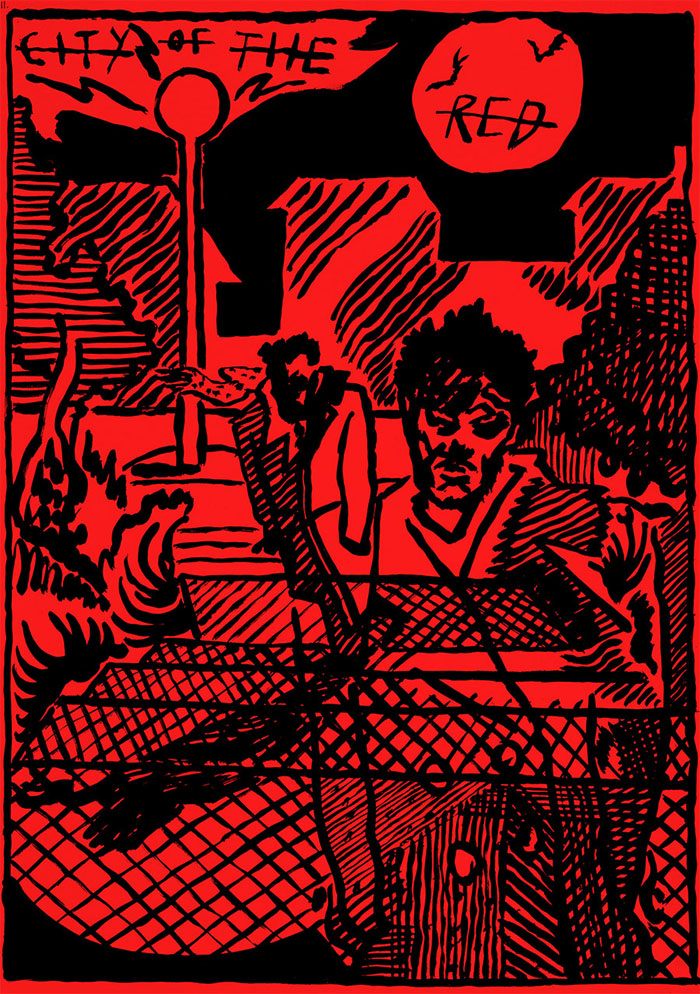
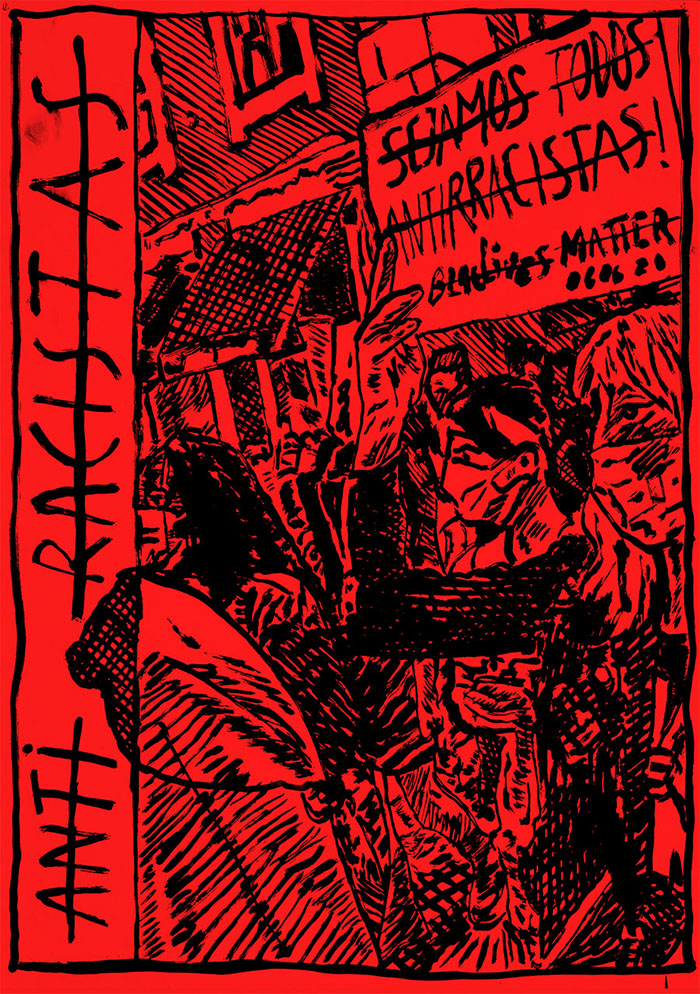
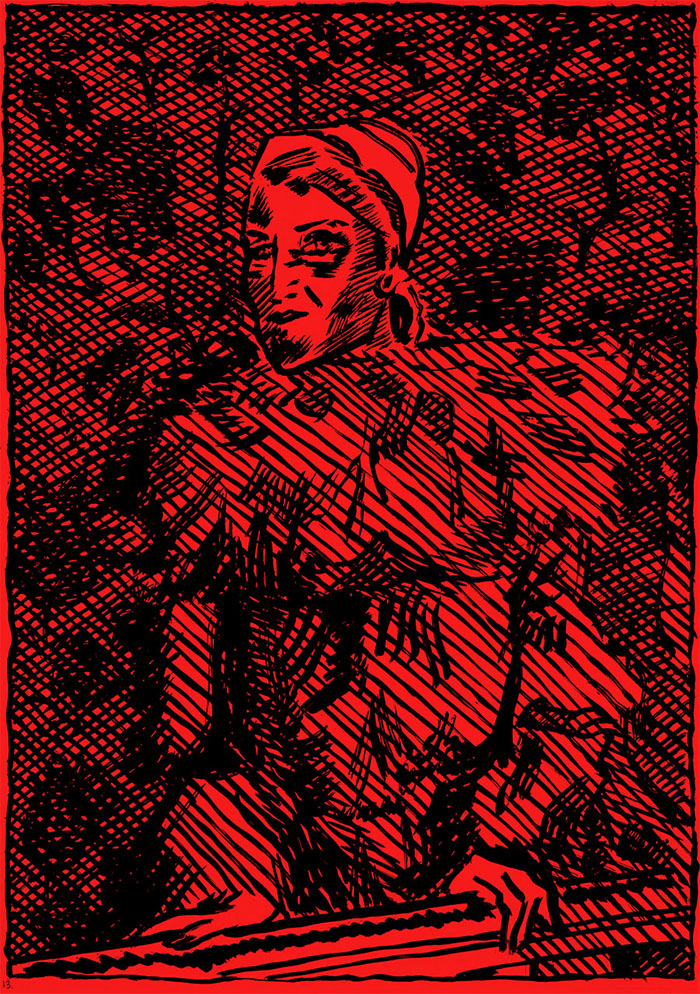
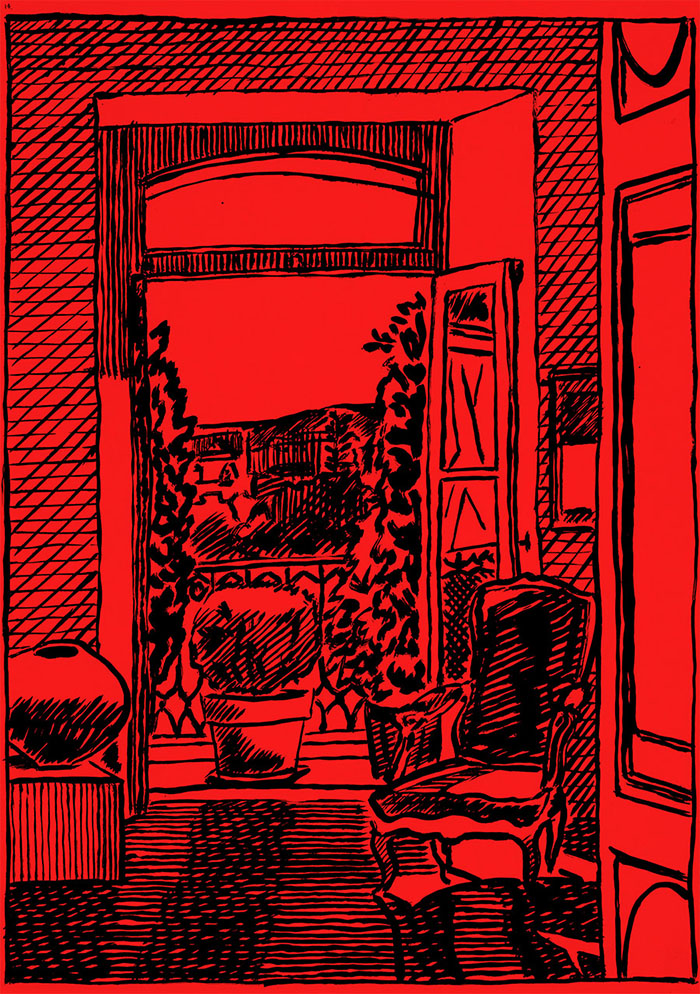
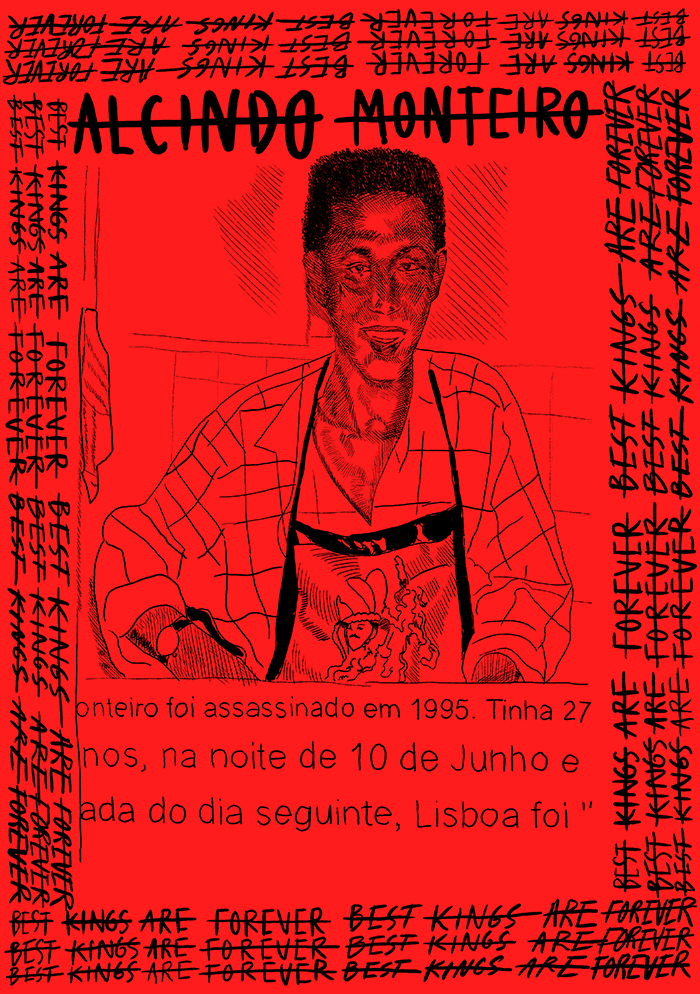
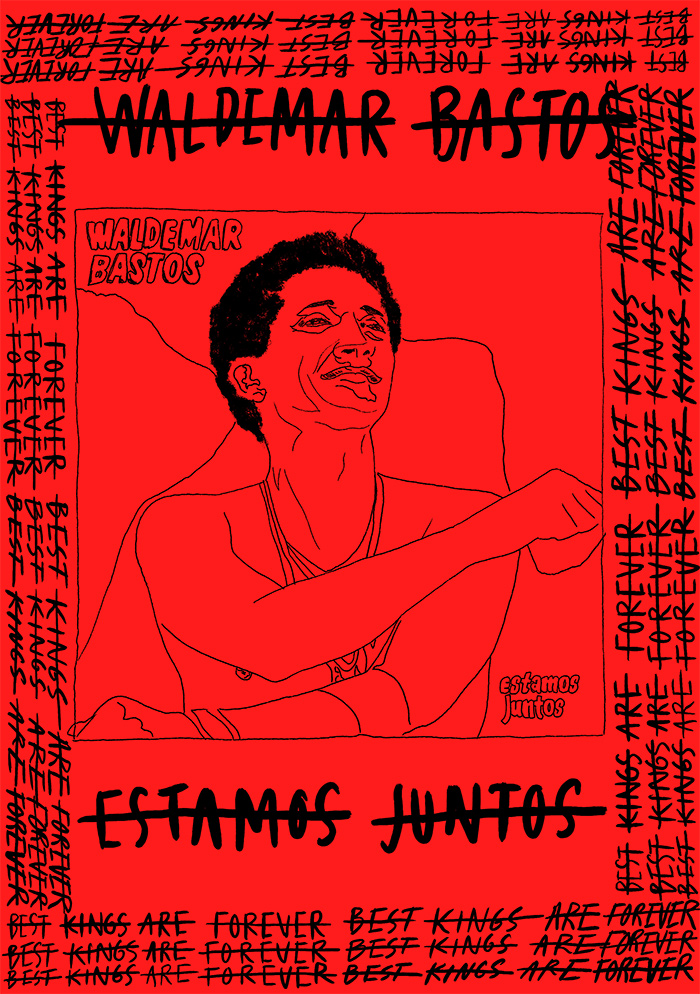
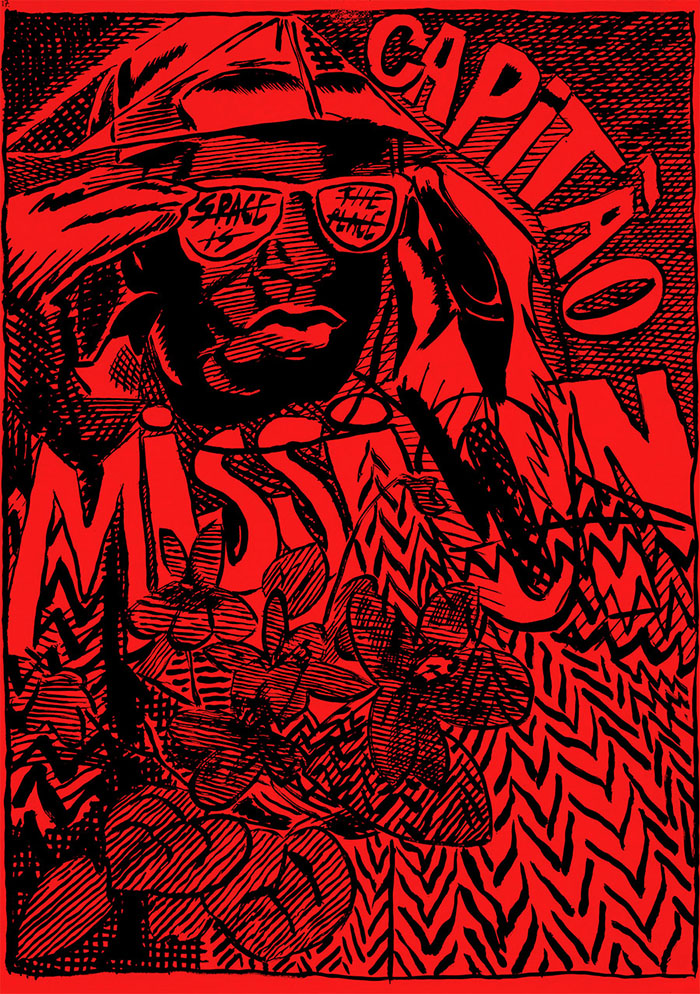
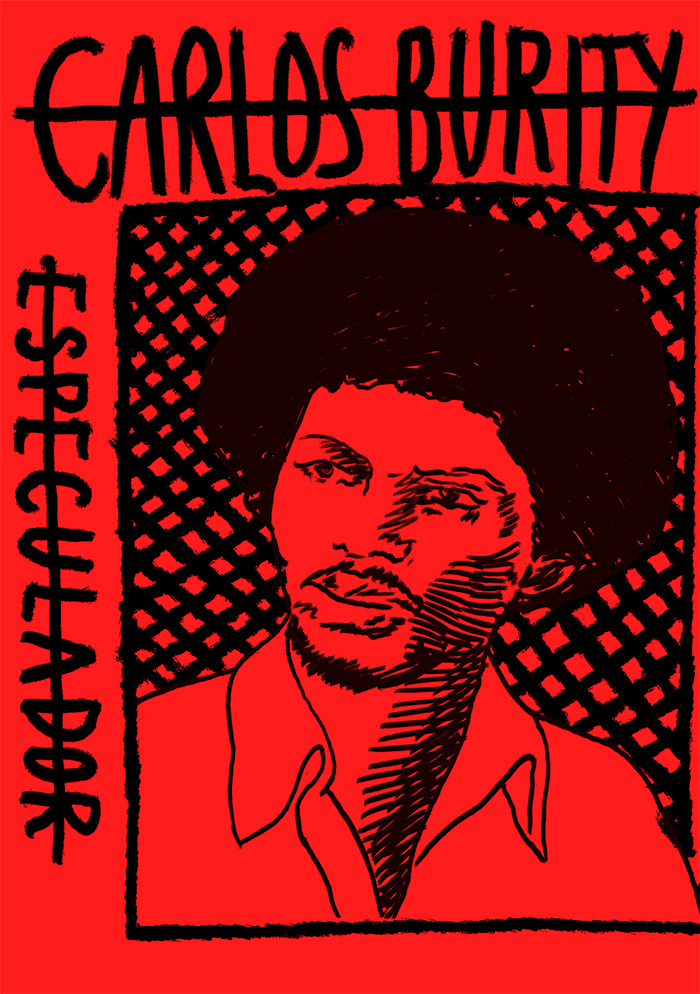
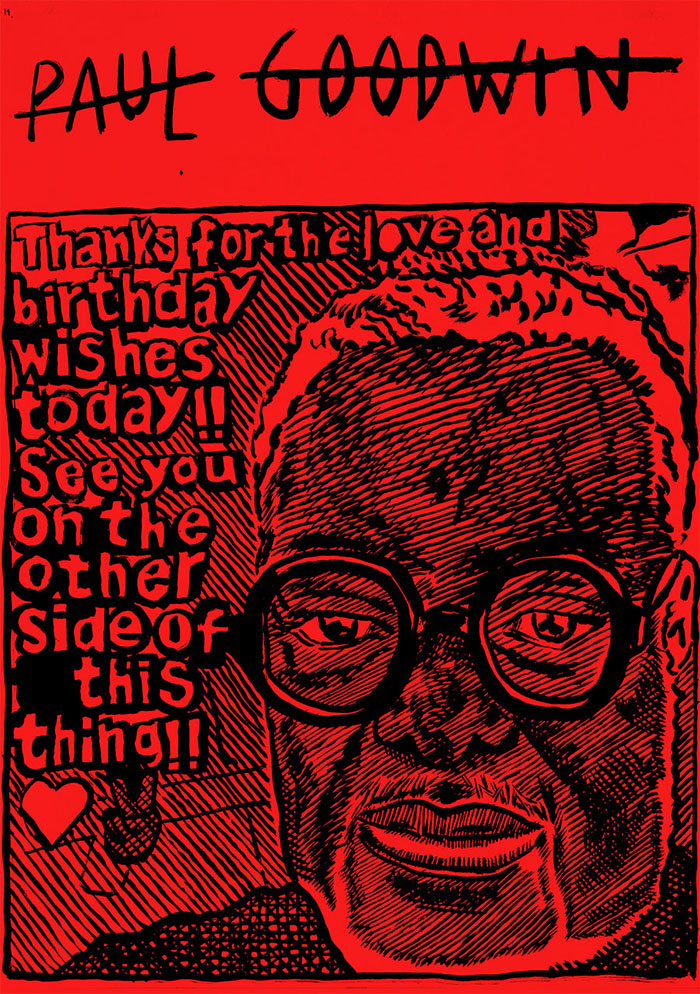
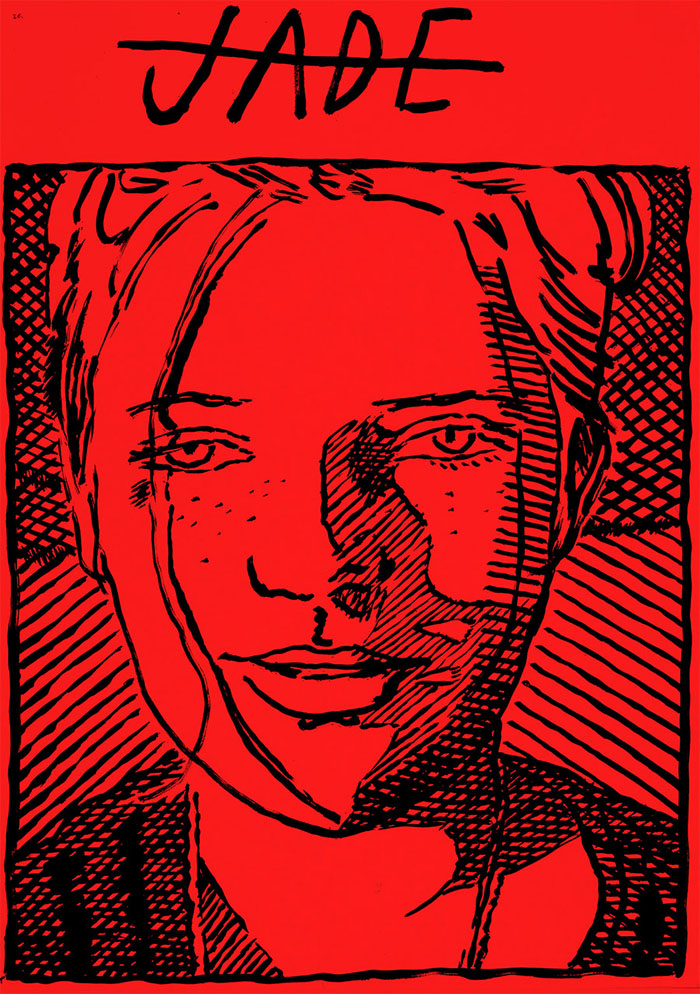
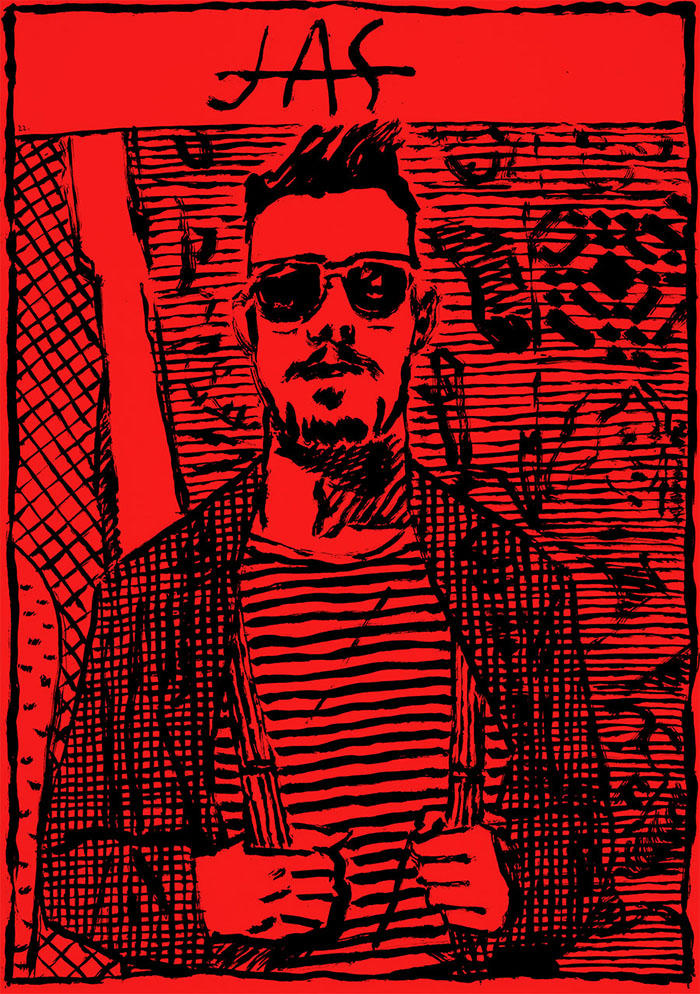
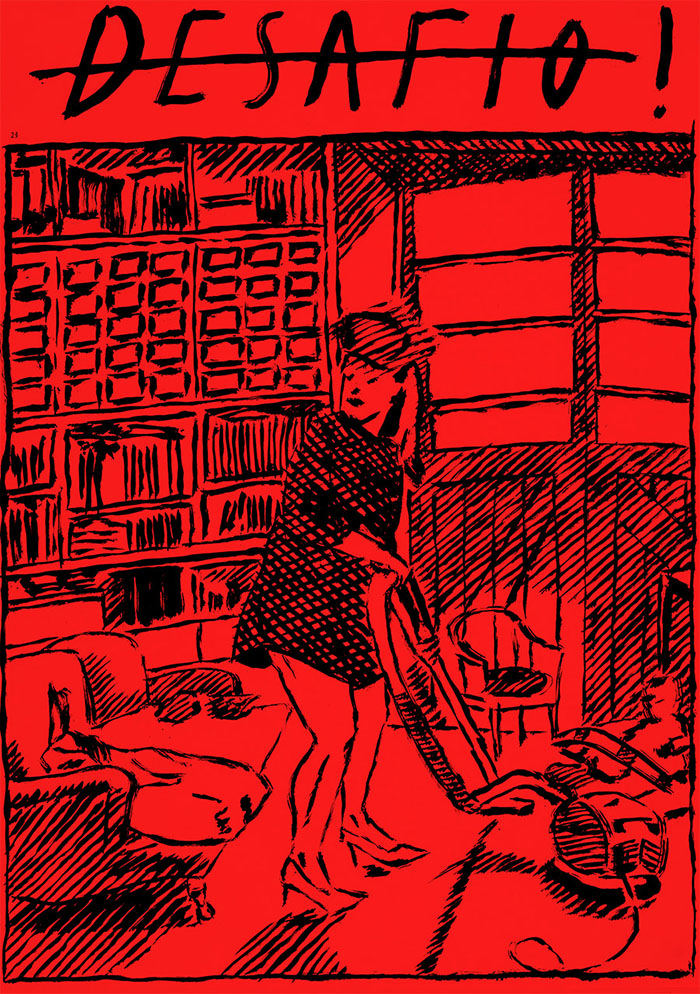
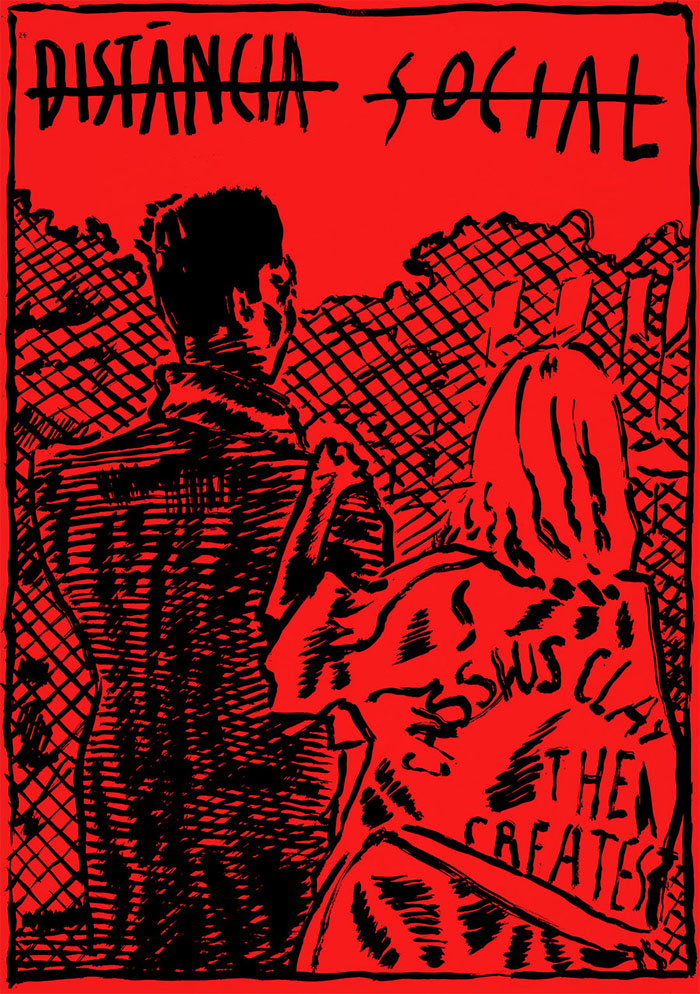
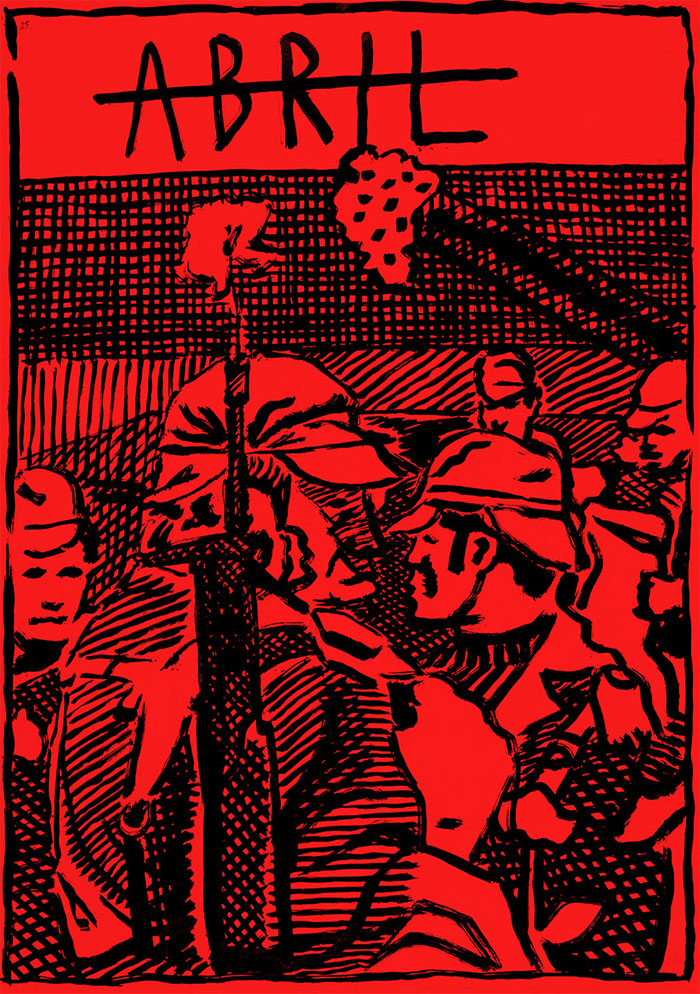
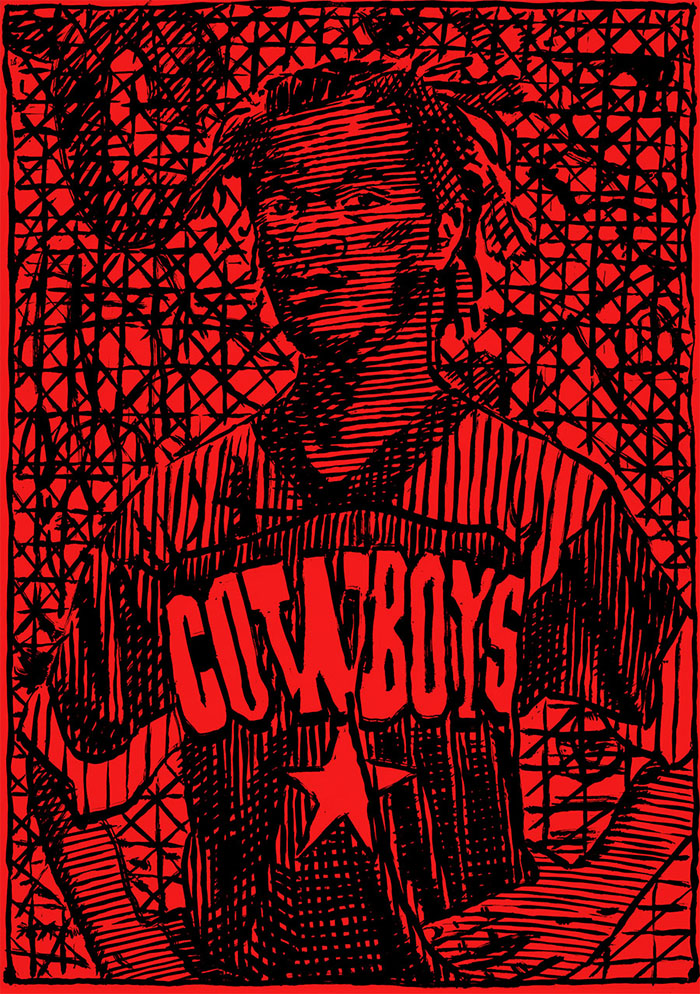
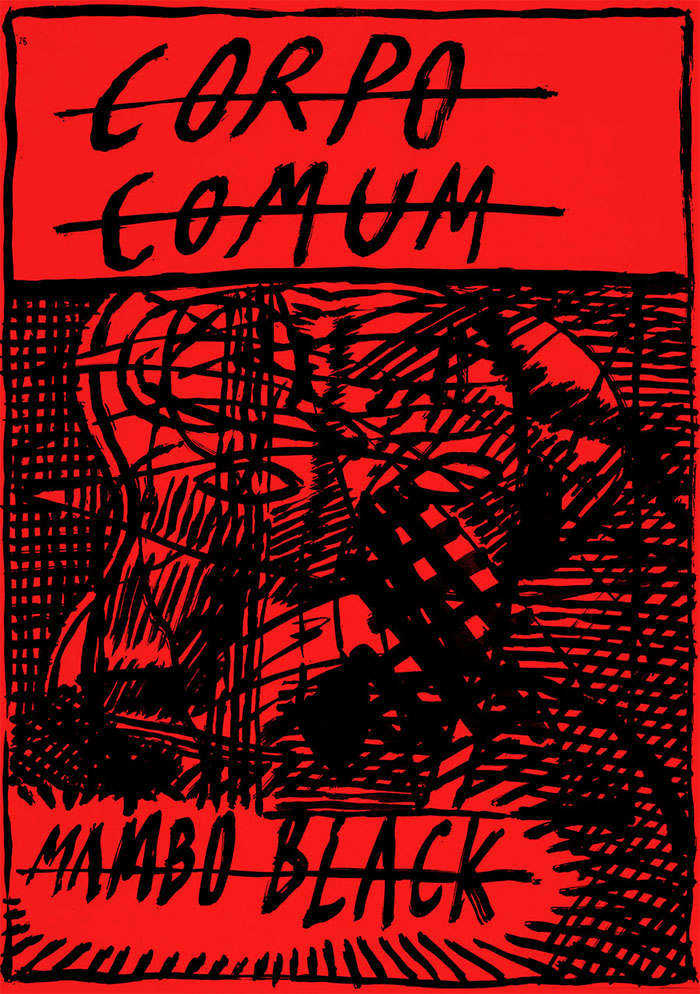
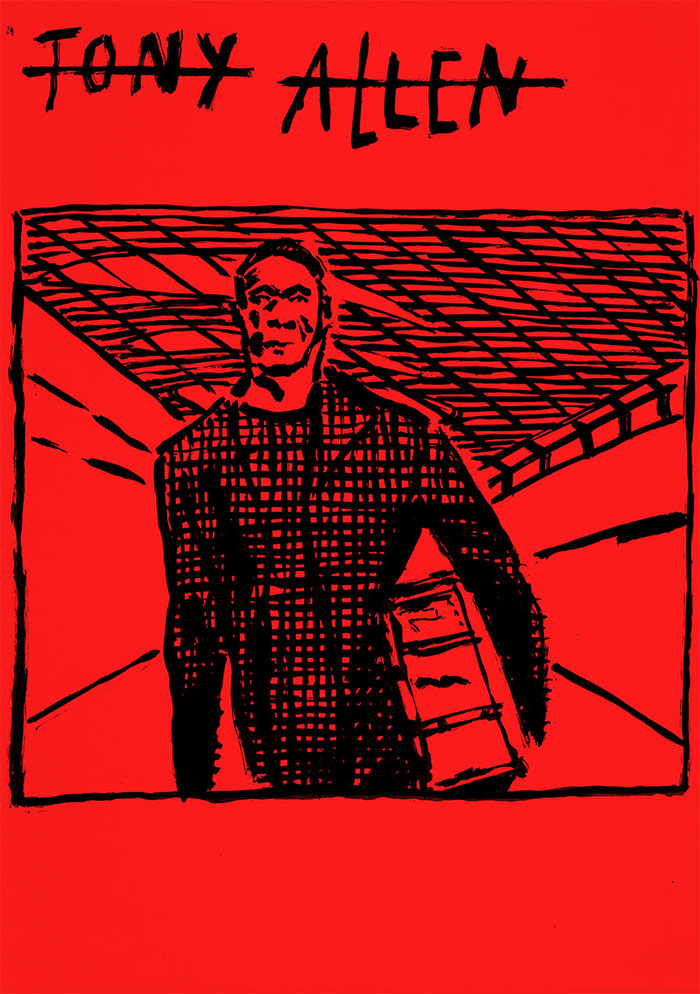
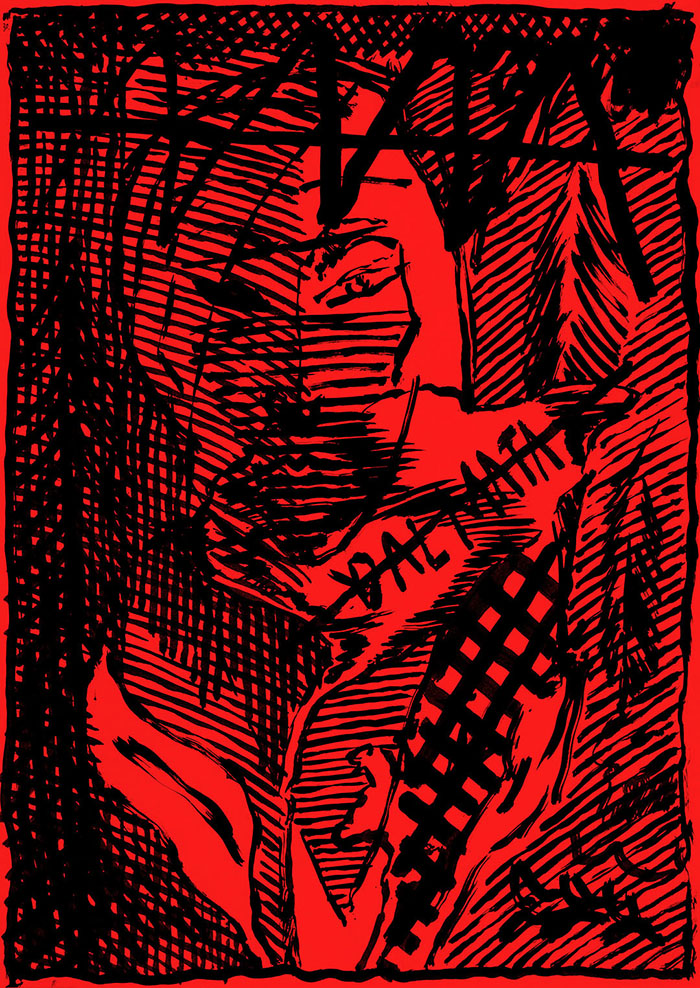
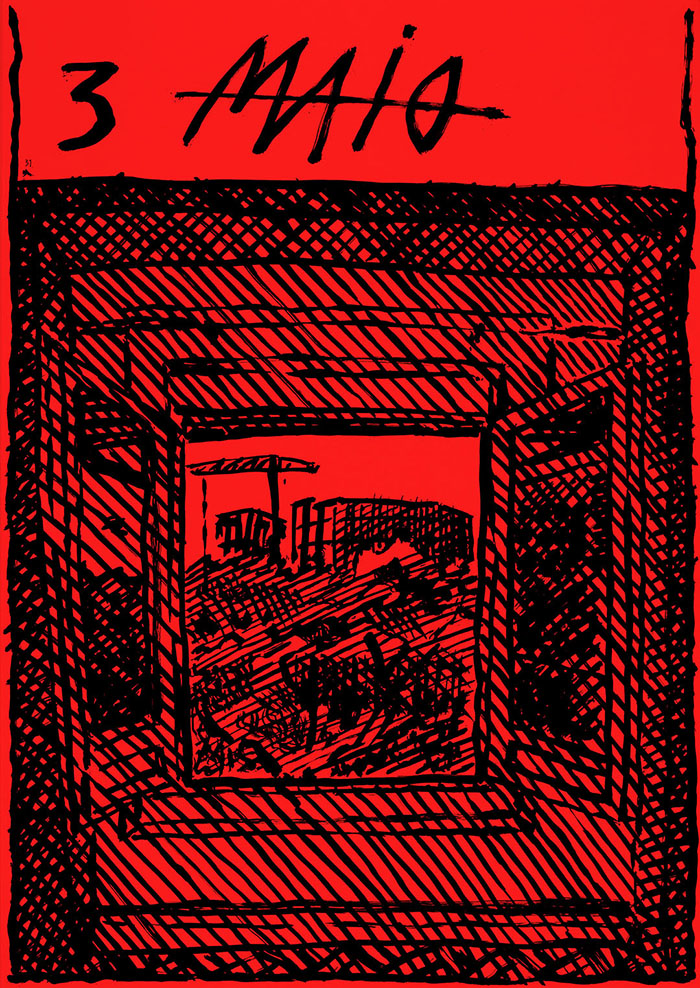
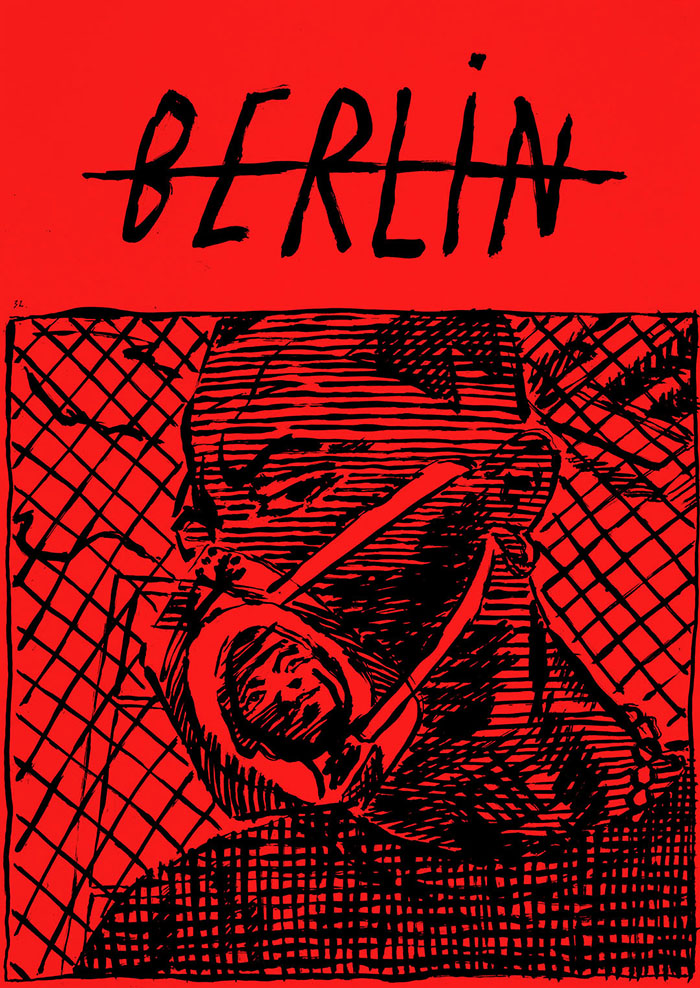
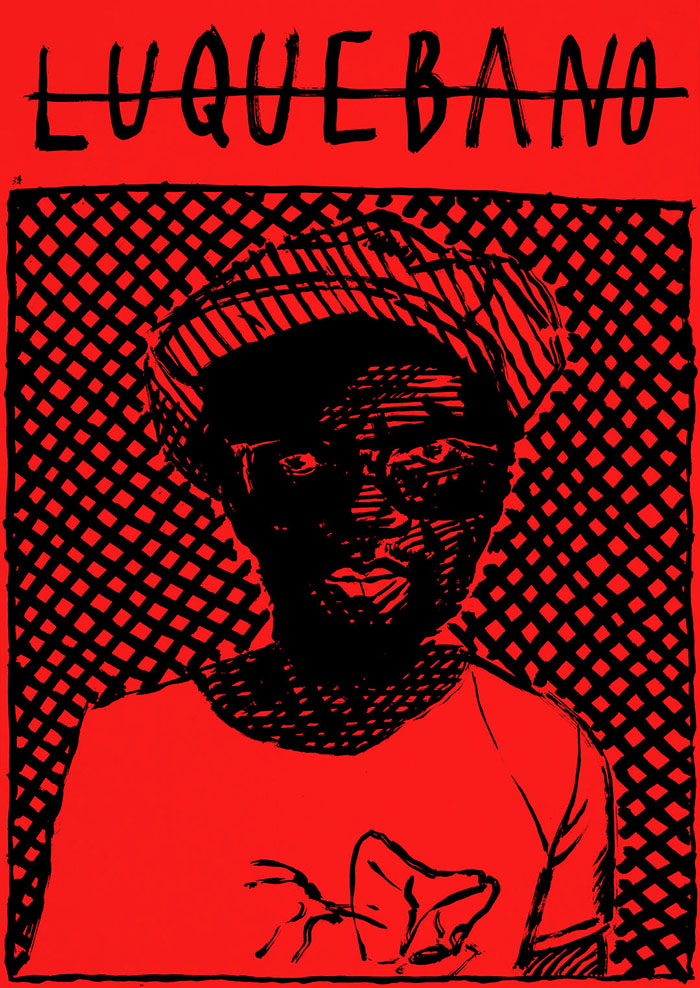
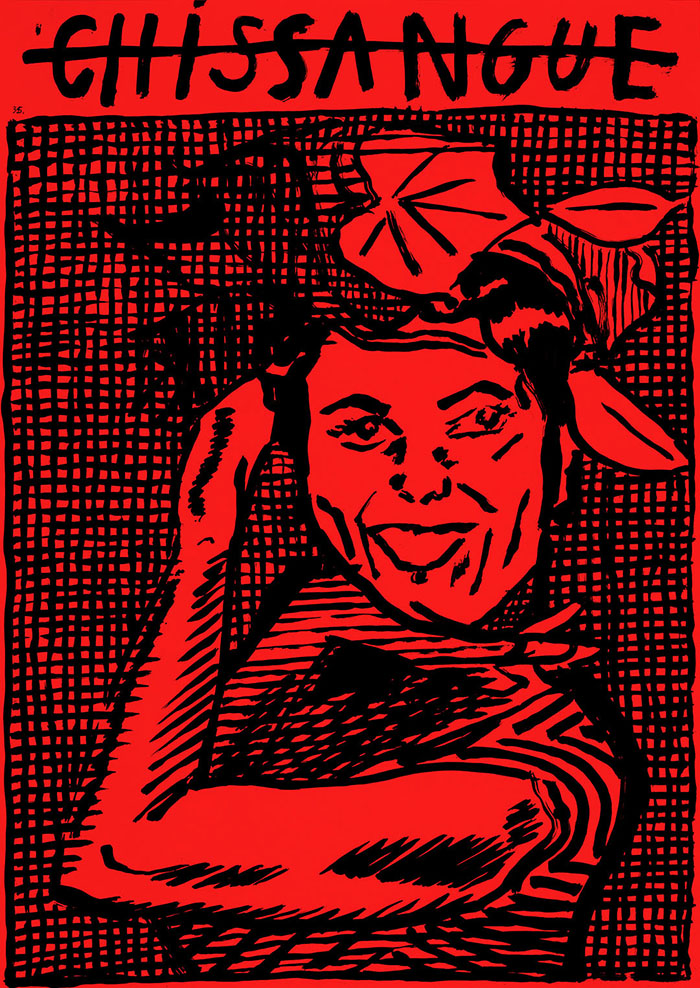
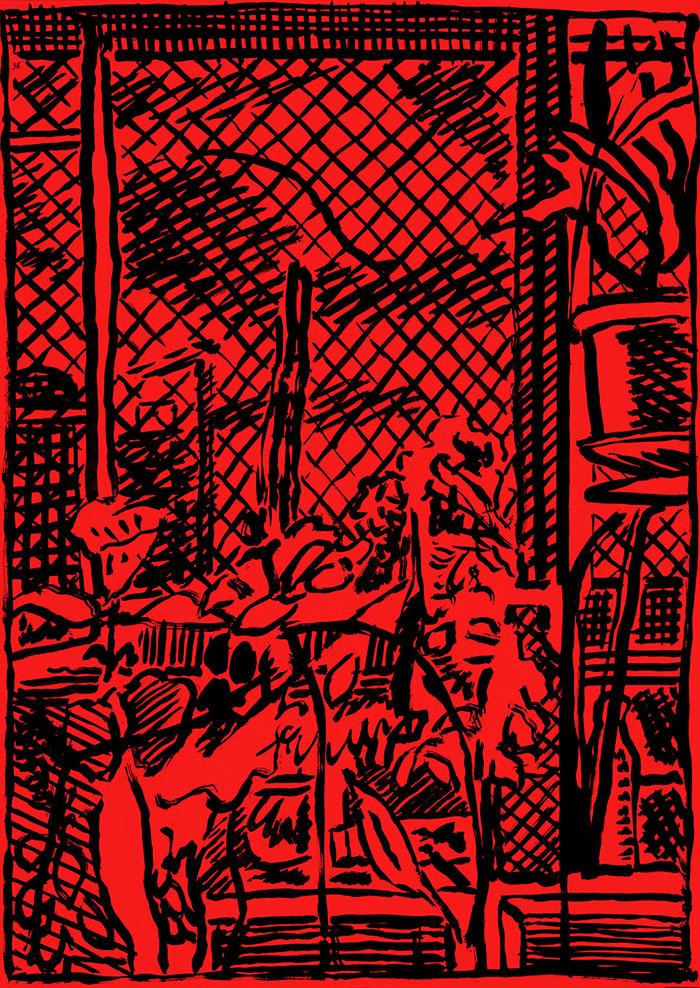

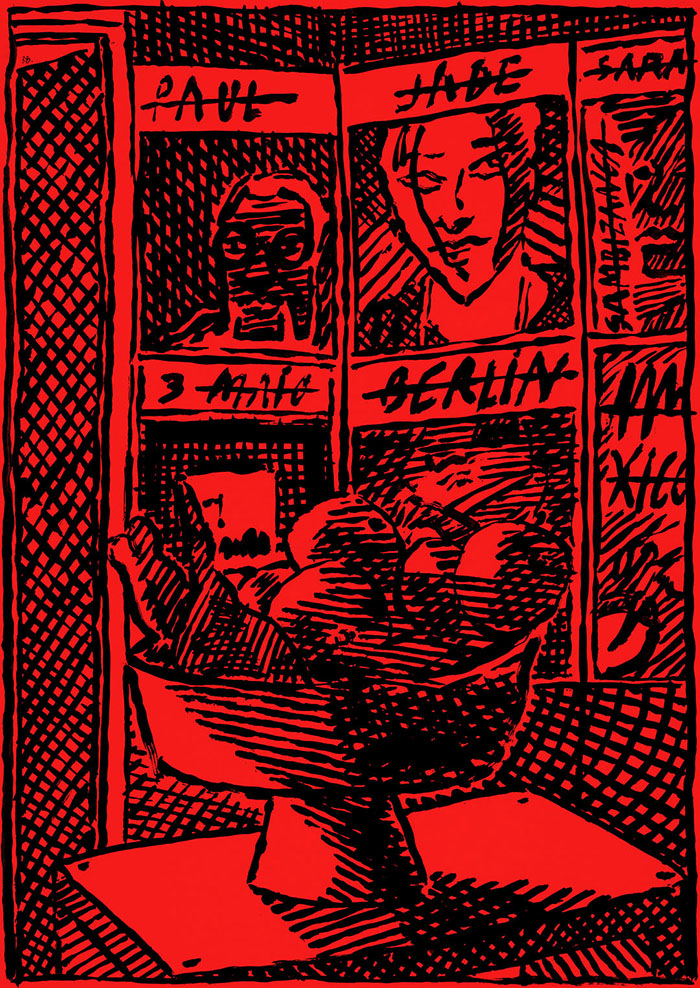
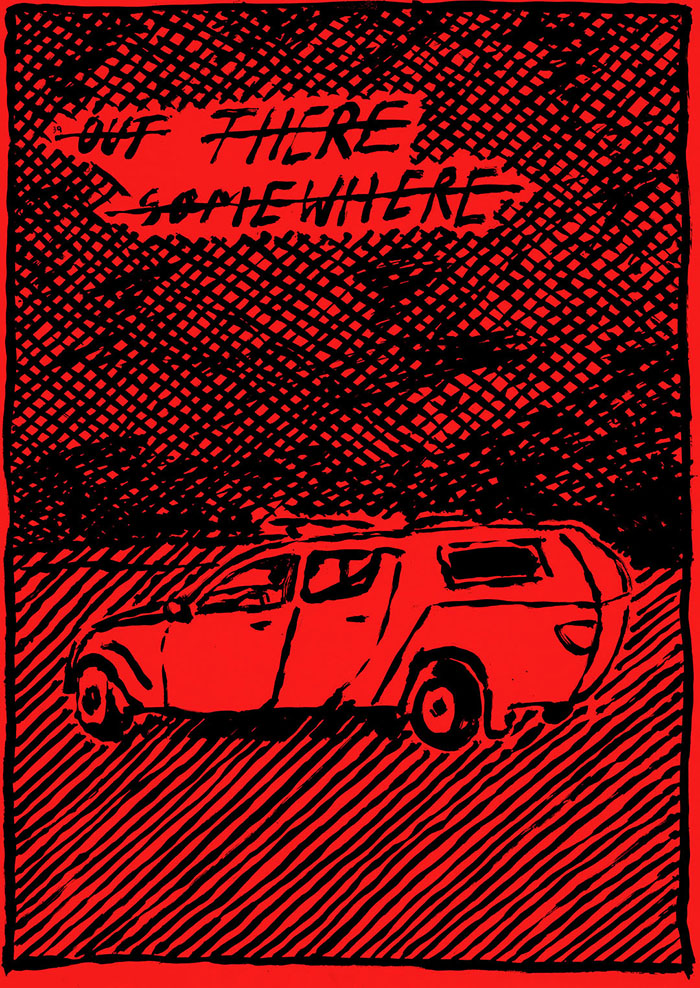
This is the concept that lies at the origin of the installation created by Francisco Vidal during the Oficina Iminente at the Panorâmico de Monsanto, Lisbon, in September 2020, which materialised the MAKA Lisboa Moment through a visual conversation, making use of painting and drawing as poetic weapons to challenge the borders of contemporary thought, covering pressing issues such as those that lie behind the racially motivated murder of the Black actor Bruno Candé, in Moscavide in broad daylight on 25 July 2020. A tribute manifested in a structure-sculpture erected as a shrine, composed of overlaid wooden parallelepipeds covered in posters with a drawing of the actor’s face – the same image that is repeated on the 100 T-shirts, numbered, screen printed and hand-painted on the occasion of the performance that included the group of batucadeiras Finka Pé, from Cova da Moura, and the trompetist Ricardo Pinto. The T-shirts are available from the Underdogs’ website and store, sold with the objective of raising funds for Bruno Candé’s three children.
It is this space of action and reflection that encapsulates the contemporary essence of MAKA which, in its Afrofuturist matrix, seeks to address the present reality in an instructive and consequent way in order to give voice to urgent and present issues and causes, fostering the dialogue that one wishes to build so it can resonate, elevate and honour the legacy and memory of all those who, like Bruno Candé, are still victims of crimes motivated by prejudice in the 21st century. MAKA Lisboa sees itself as part of a collective commitment to, through artistic and humanistic actions, intervene and activate the practice of citizenship, to promote equality and interculturality in defence of the most fundamental human rights in the fight against discrimination, prejudice and racism, in all of its shapes and forms, at a time when hate speech arises as a political weapon.”
Namalimba Coelho
Lisbon, 2020
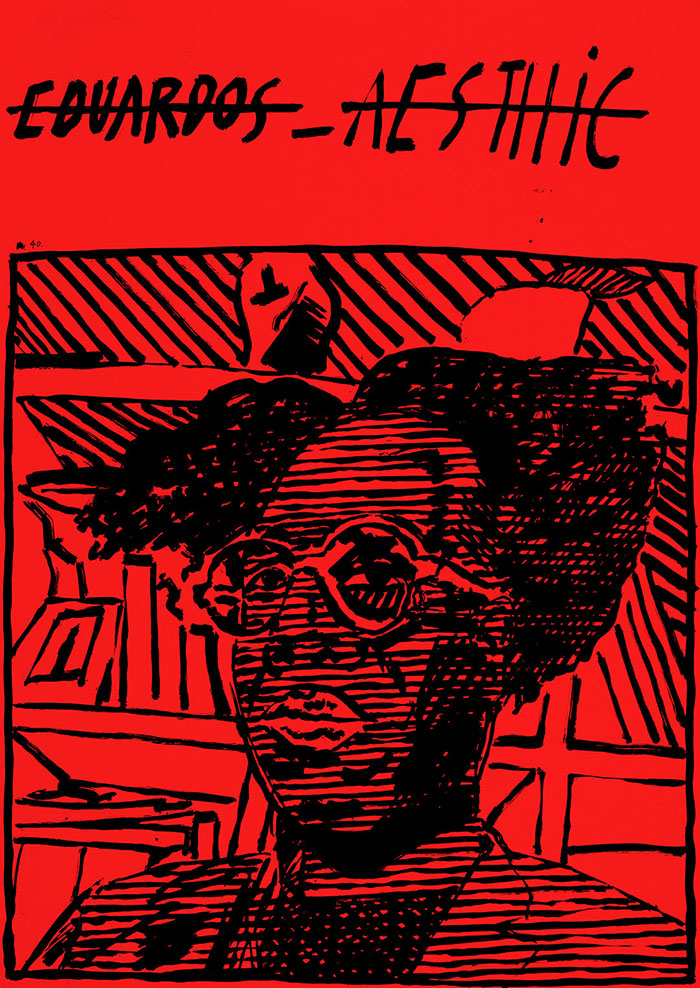
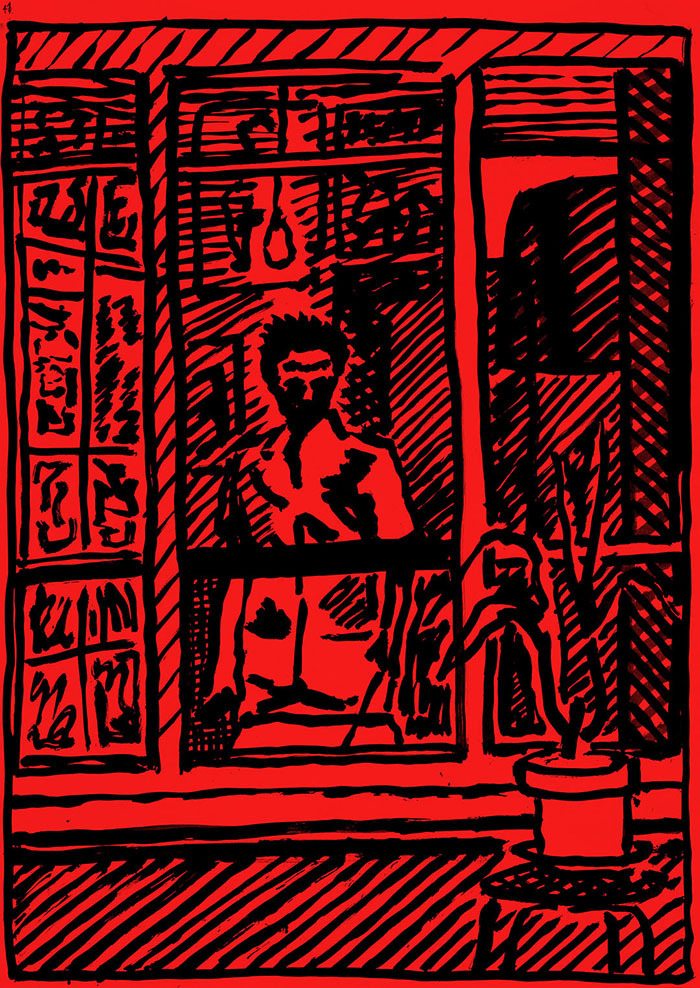
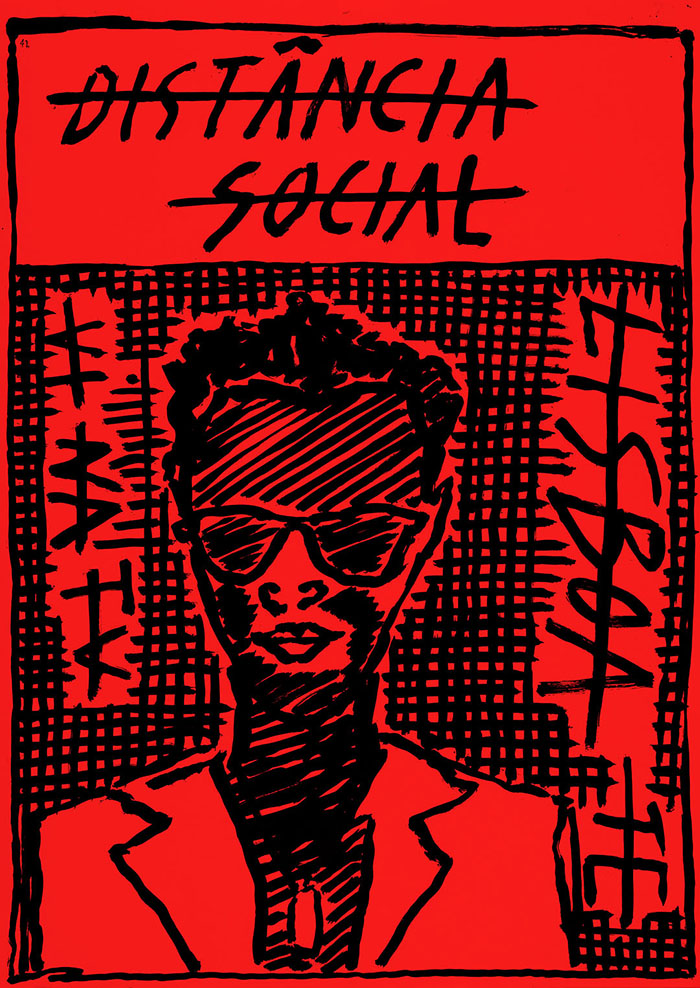
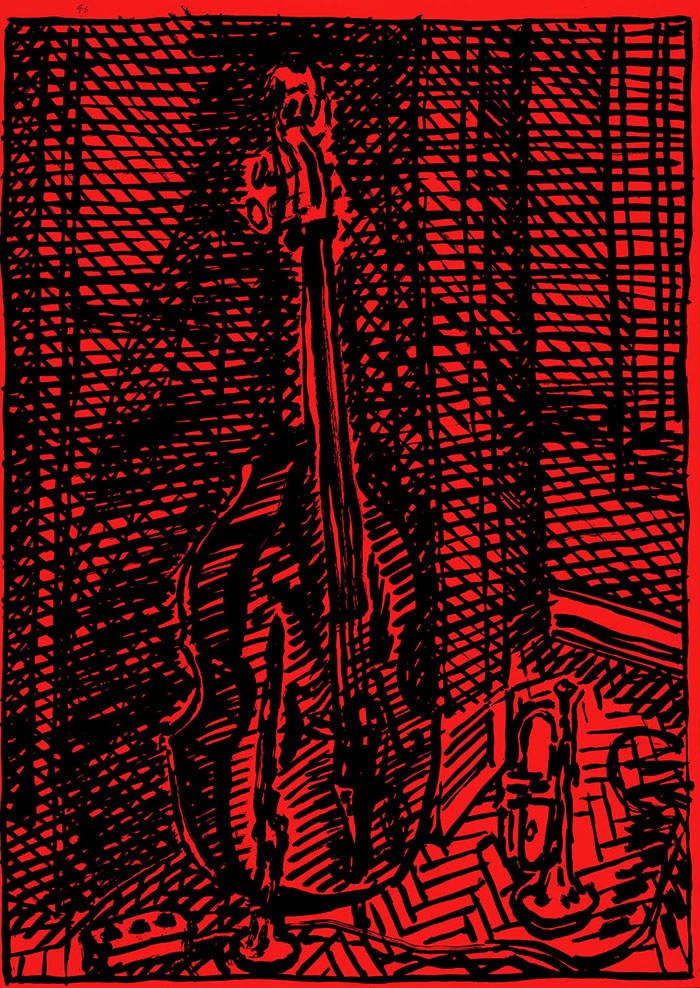
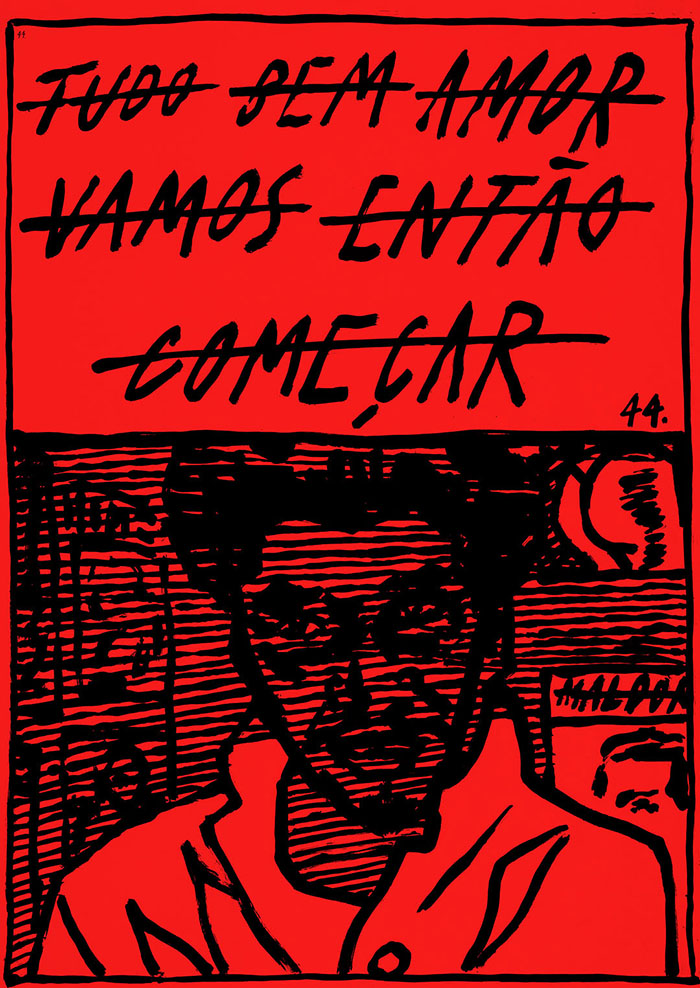
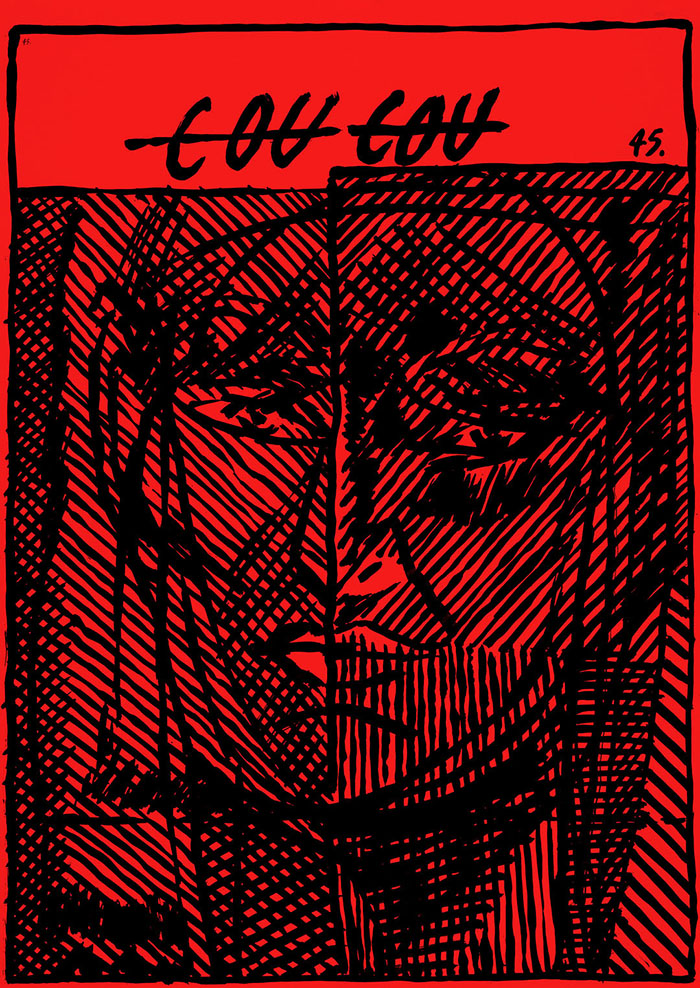
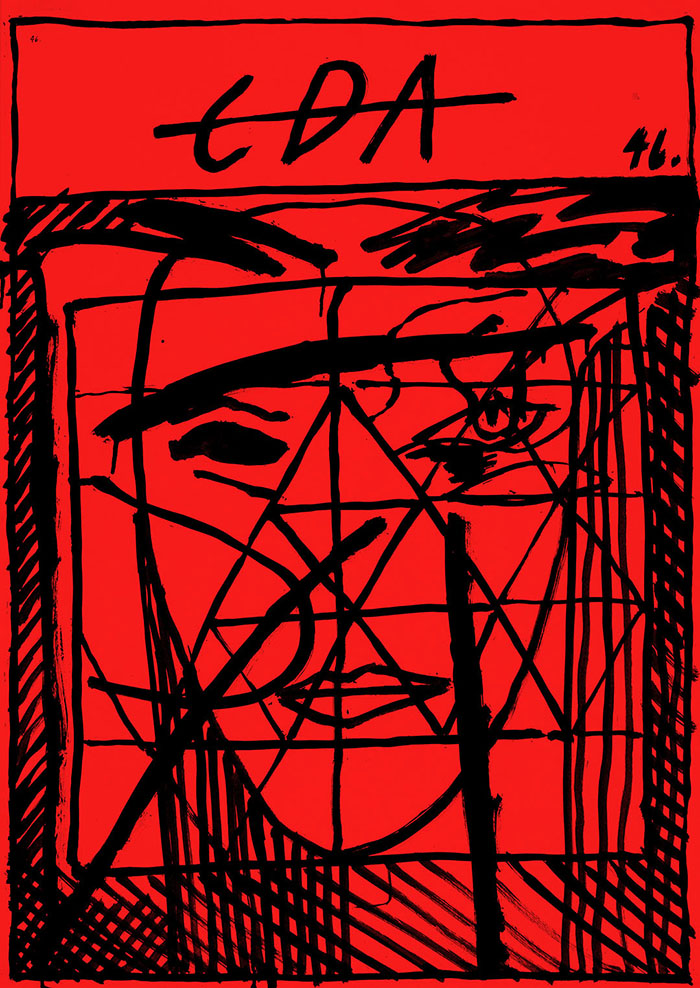
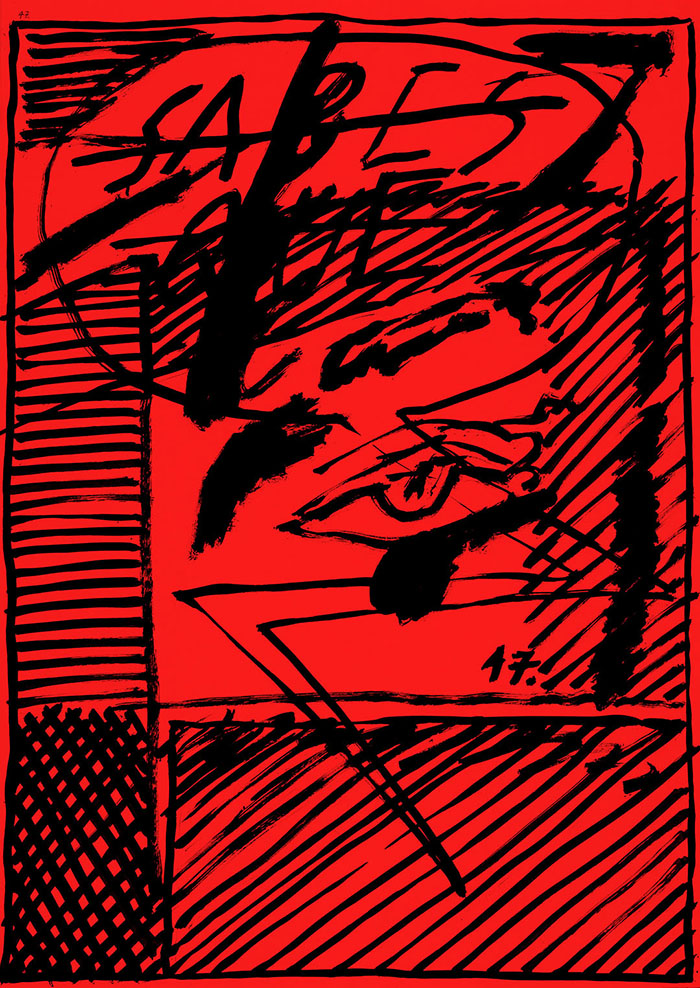
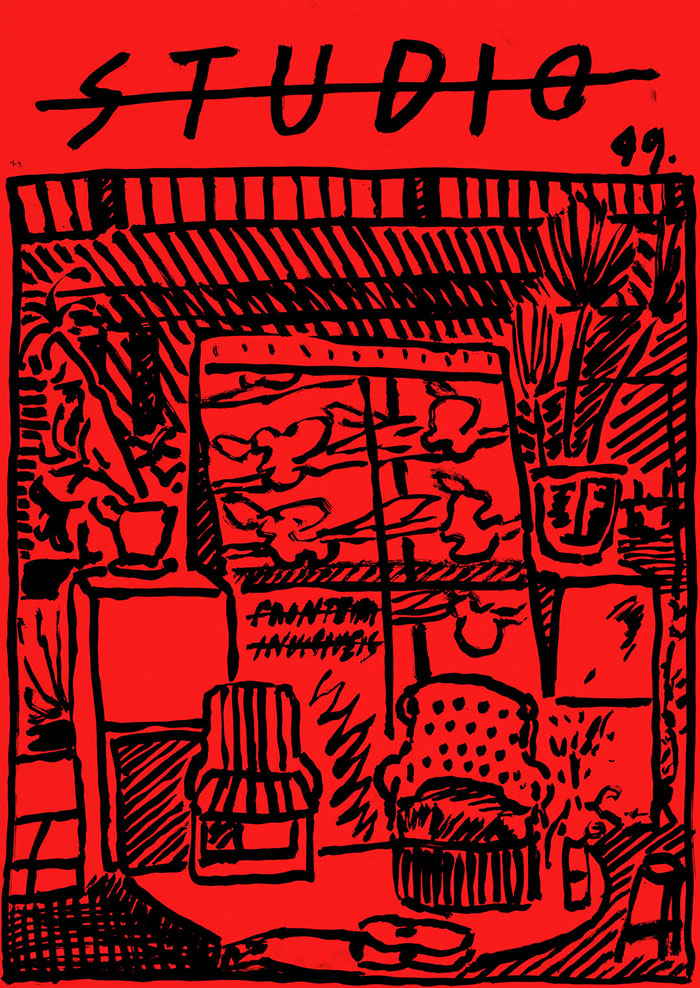
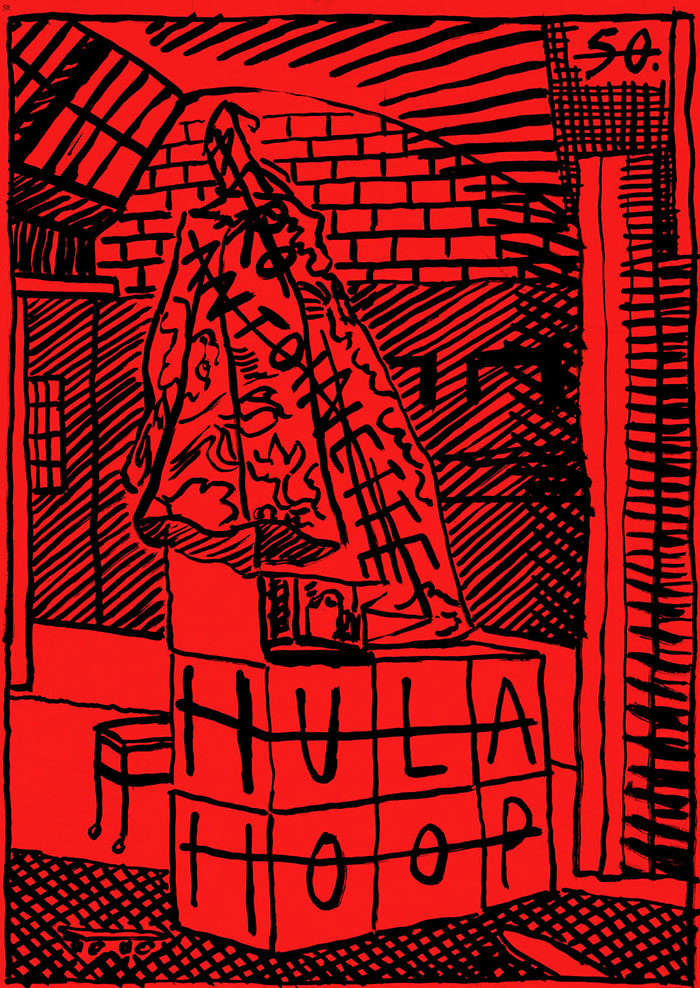
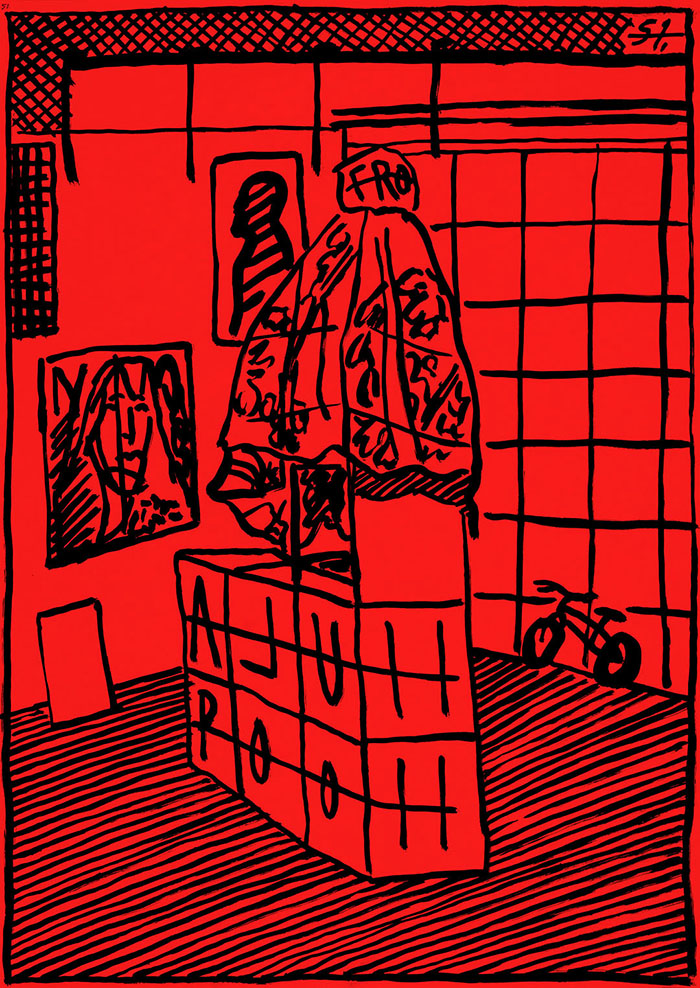
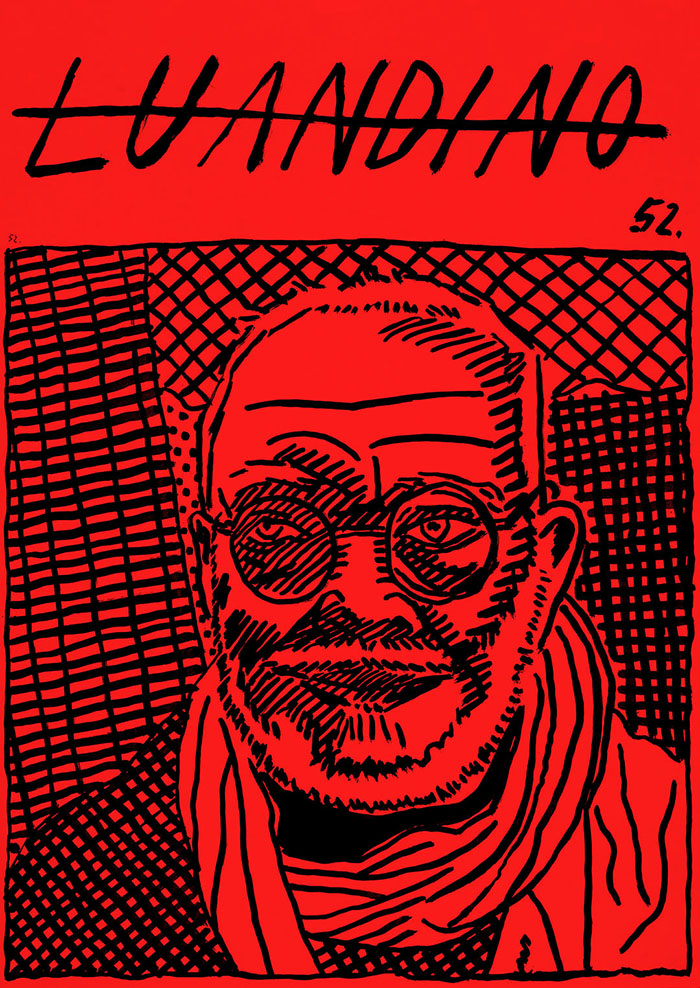
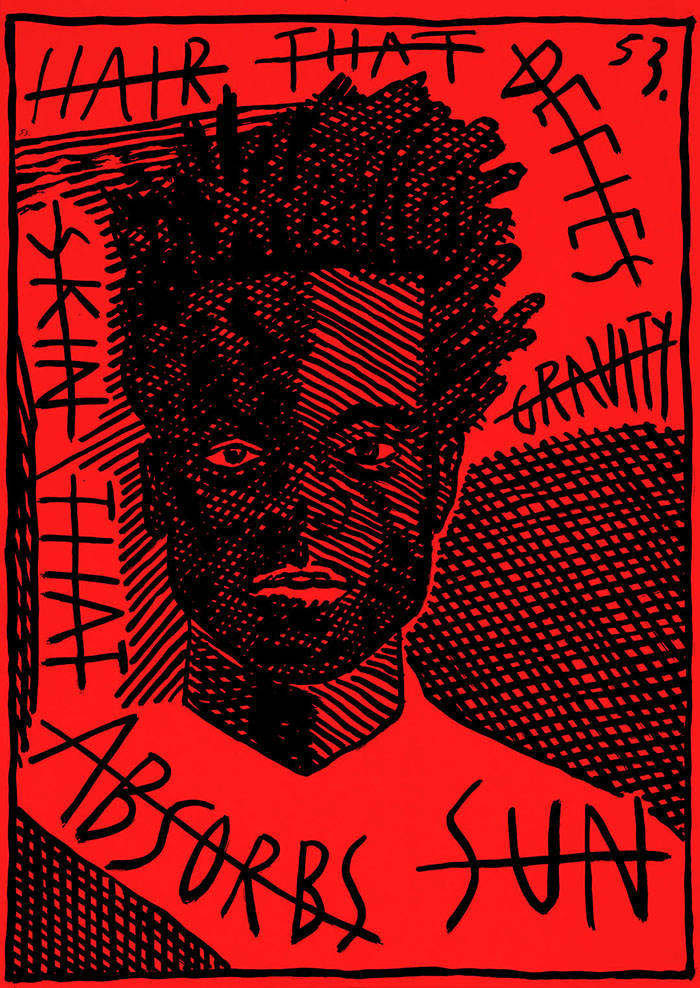
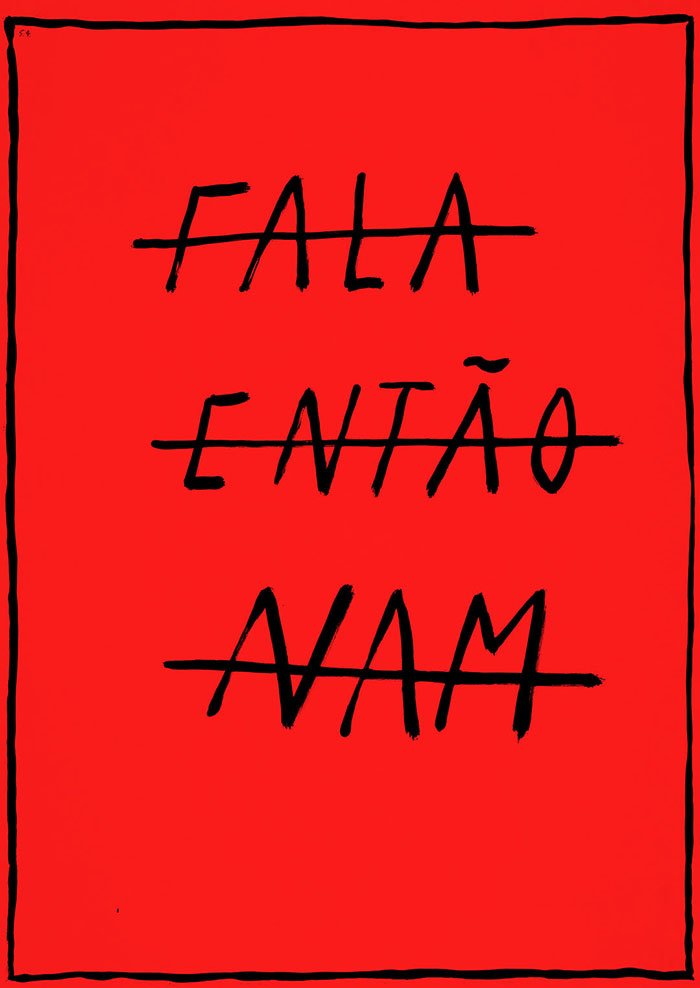
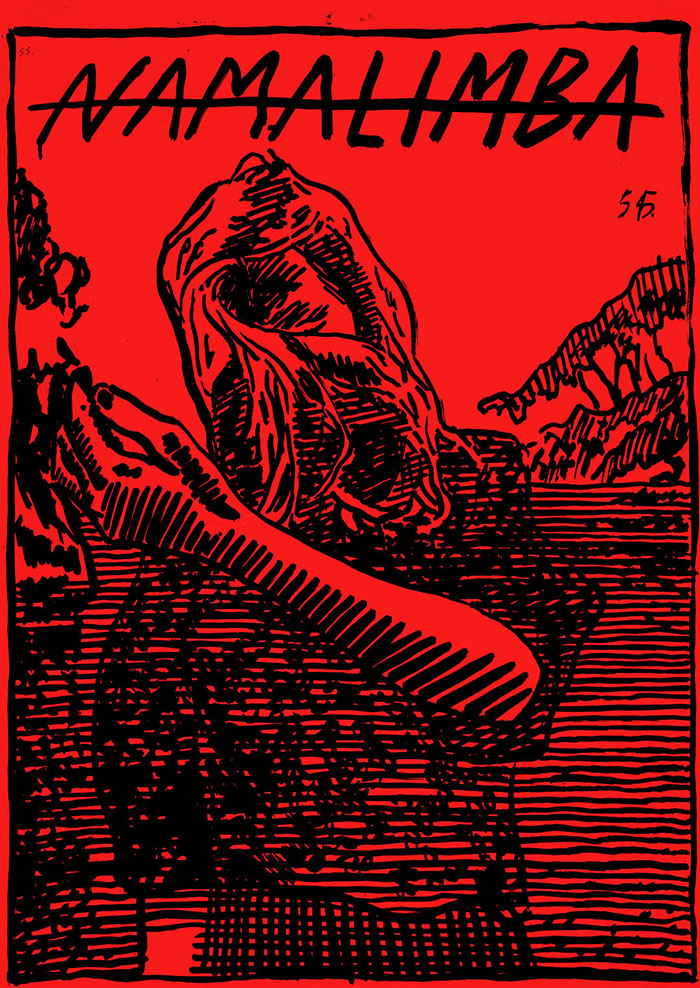
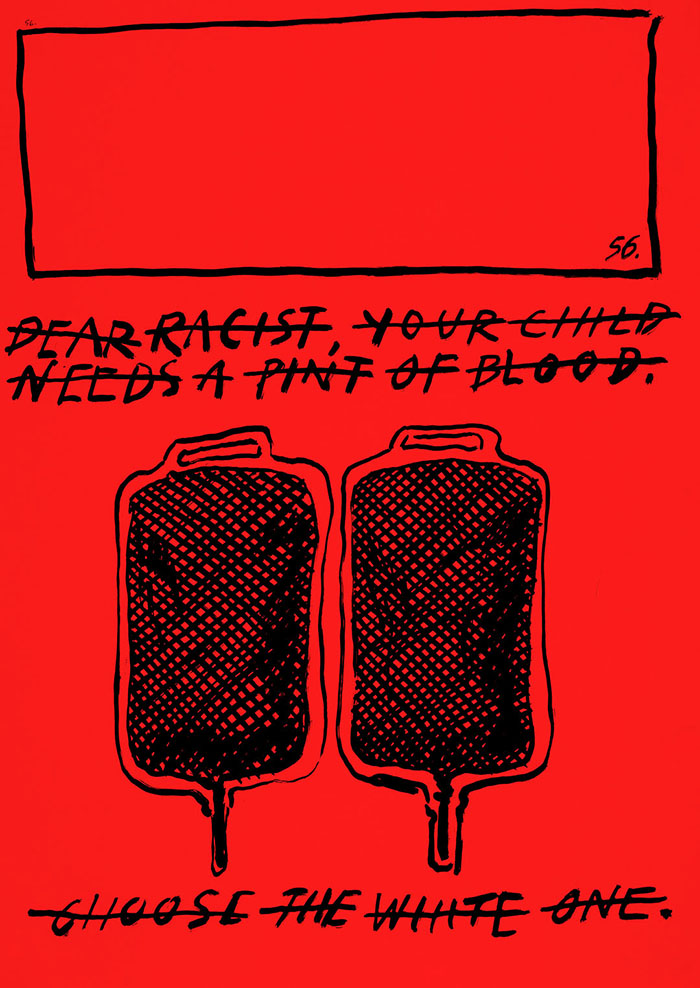
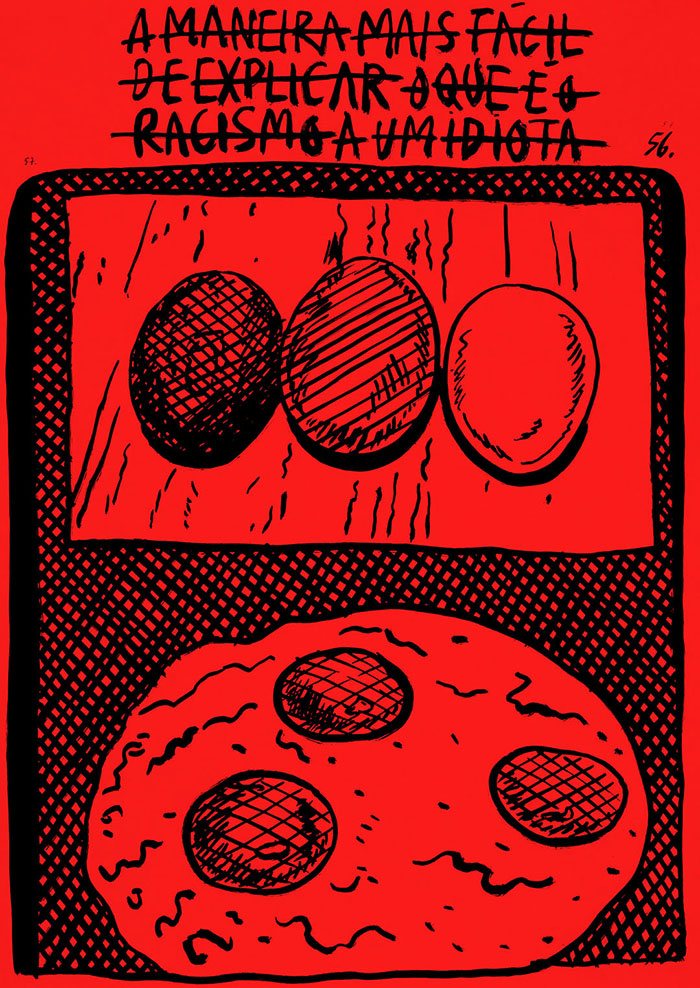
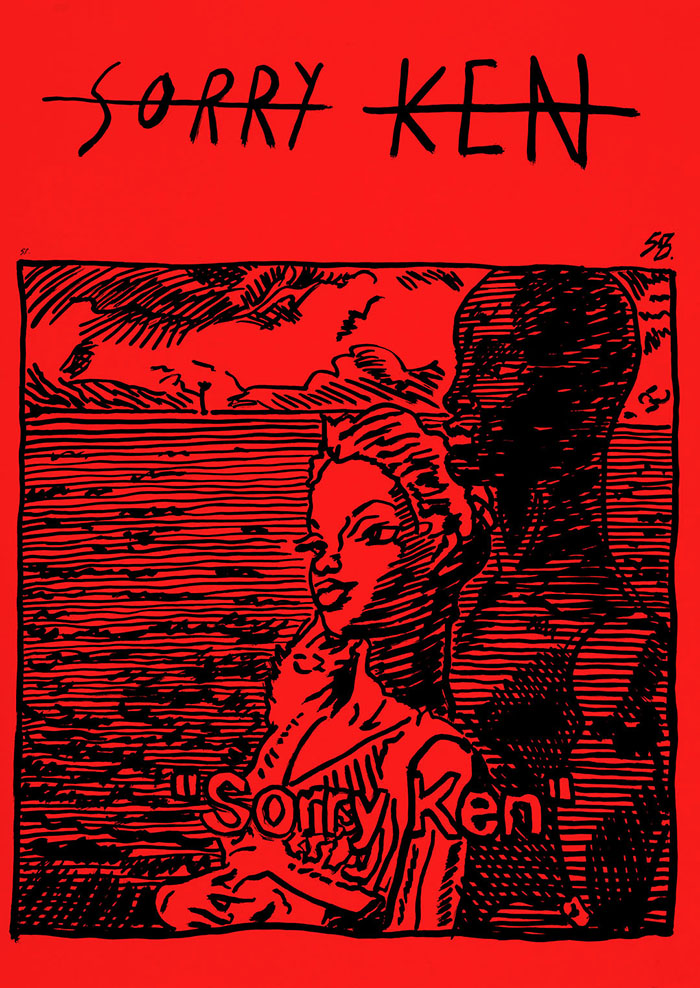
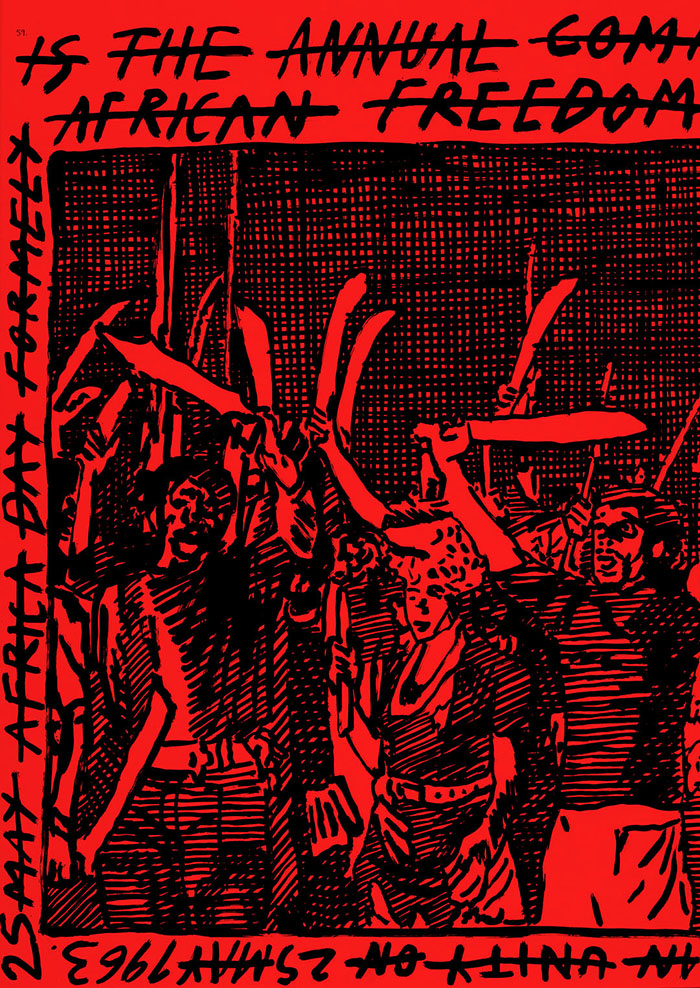
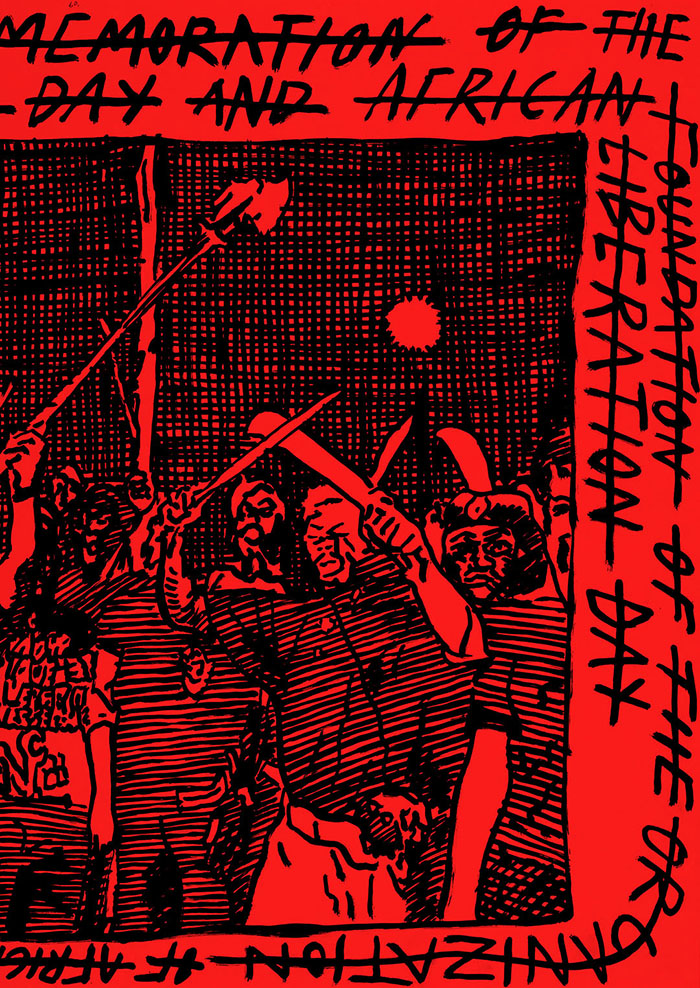
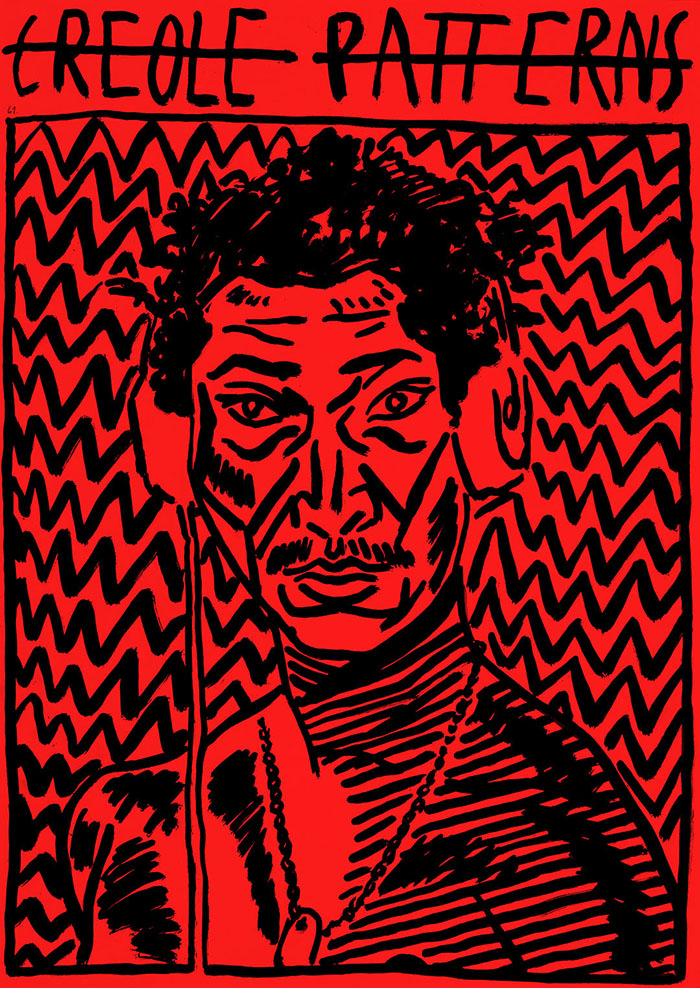
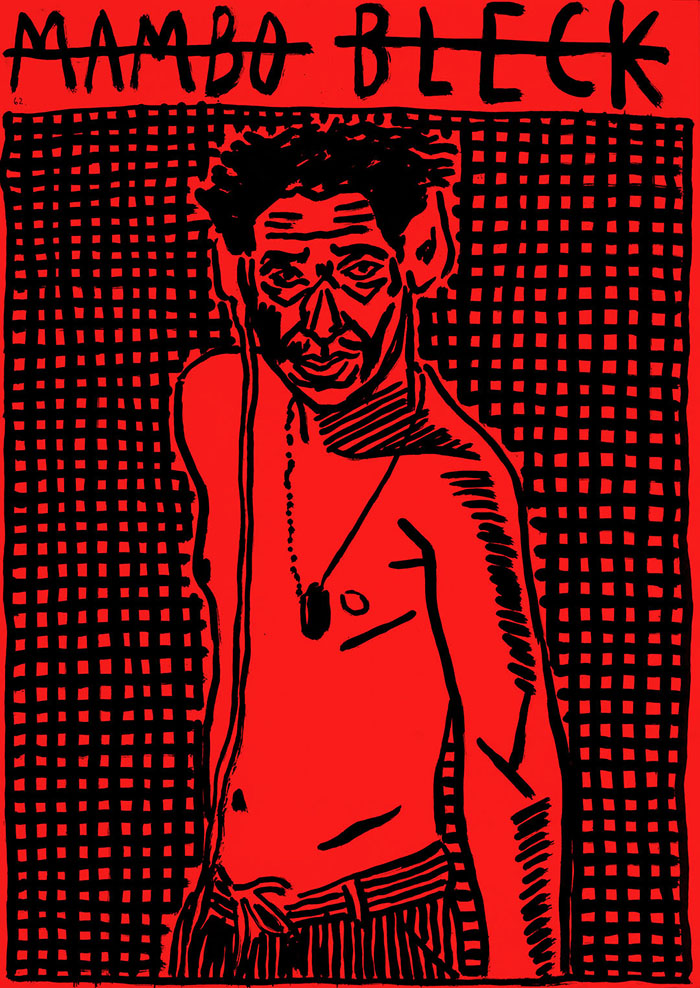
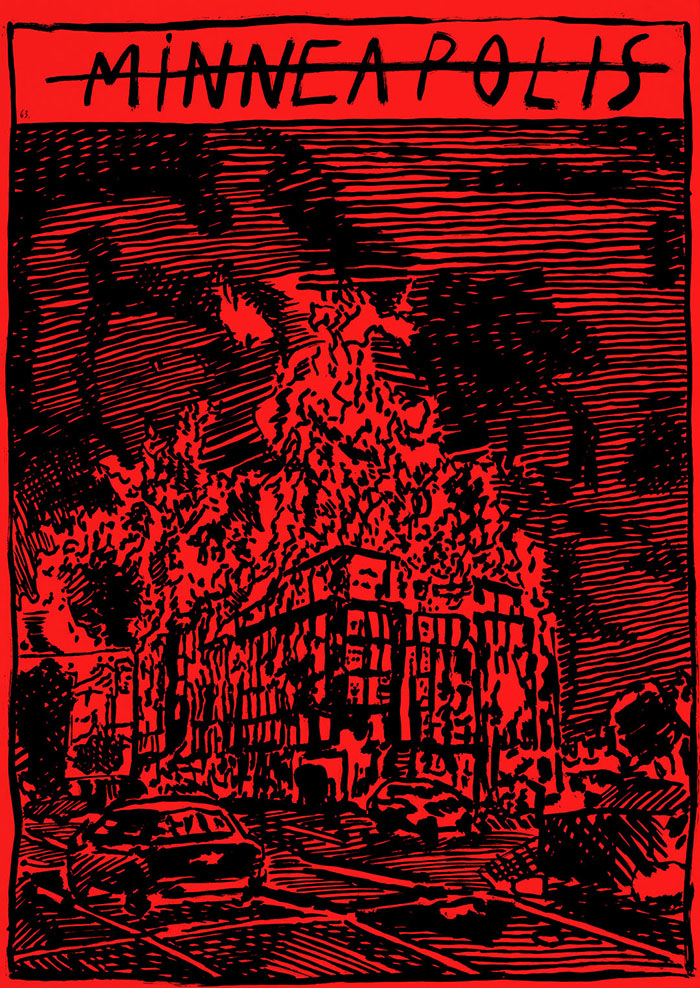
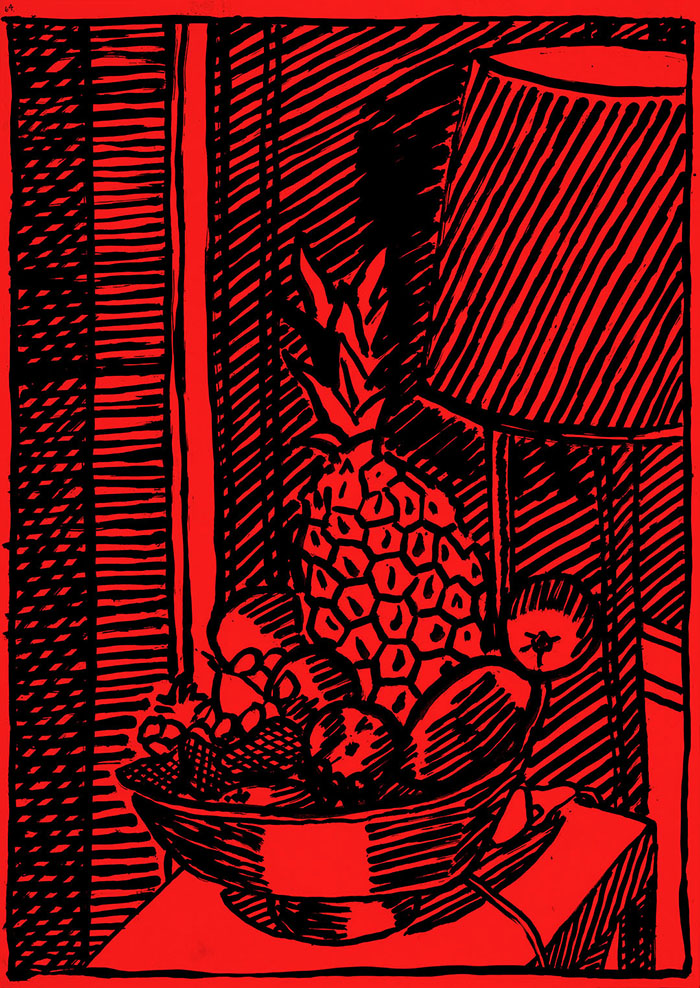
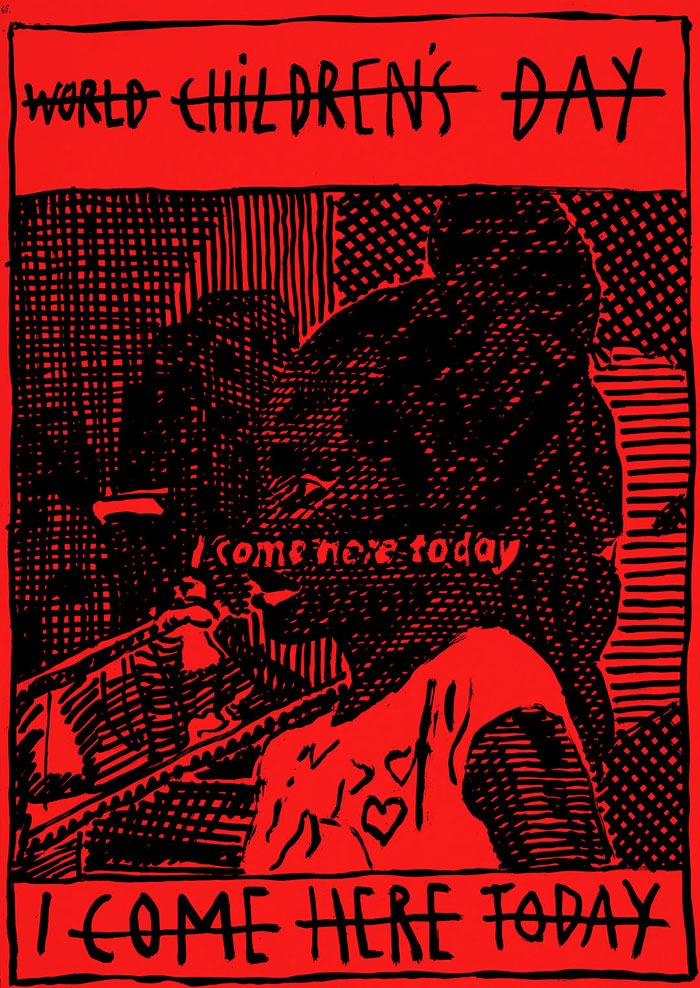
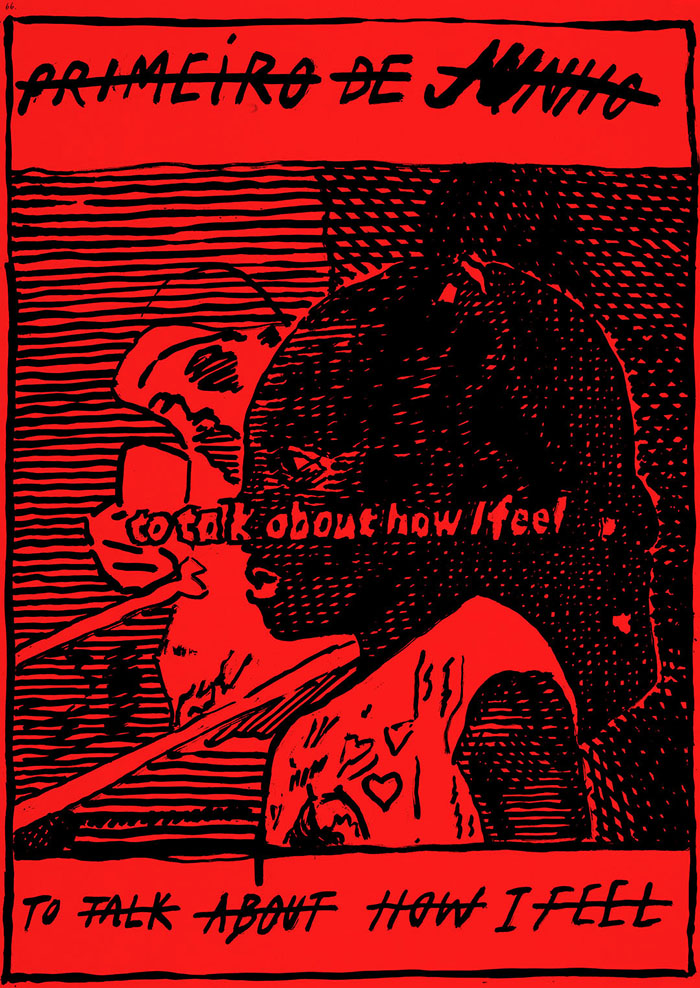
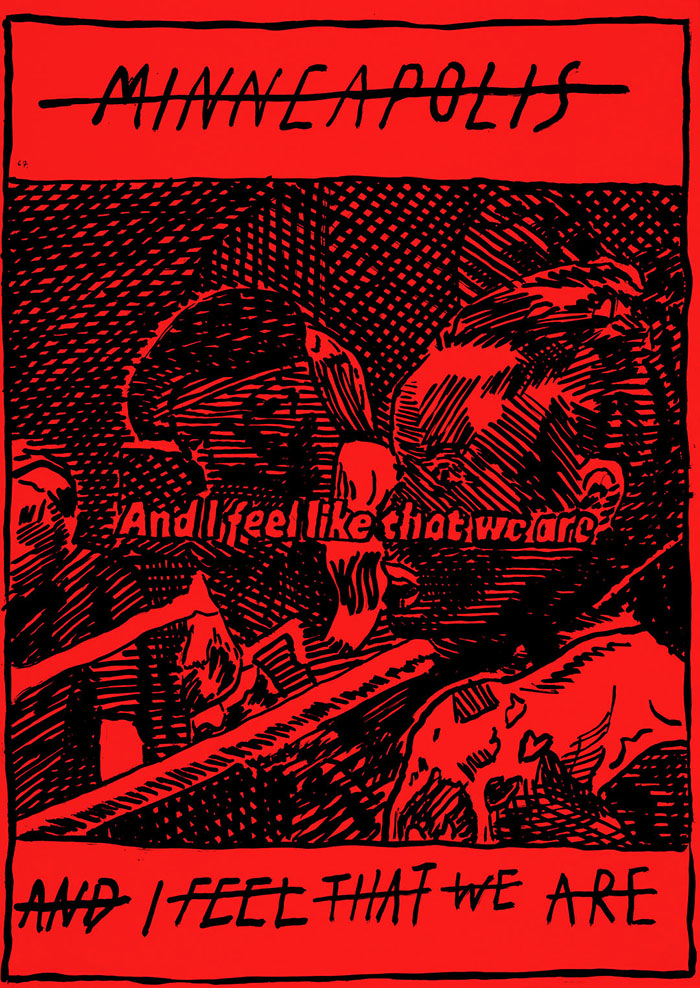
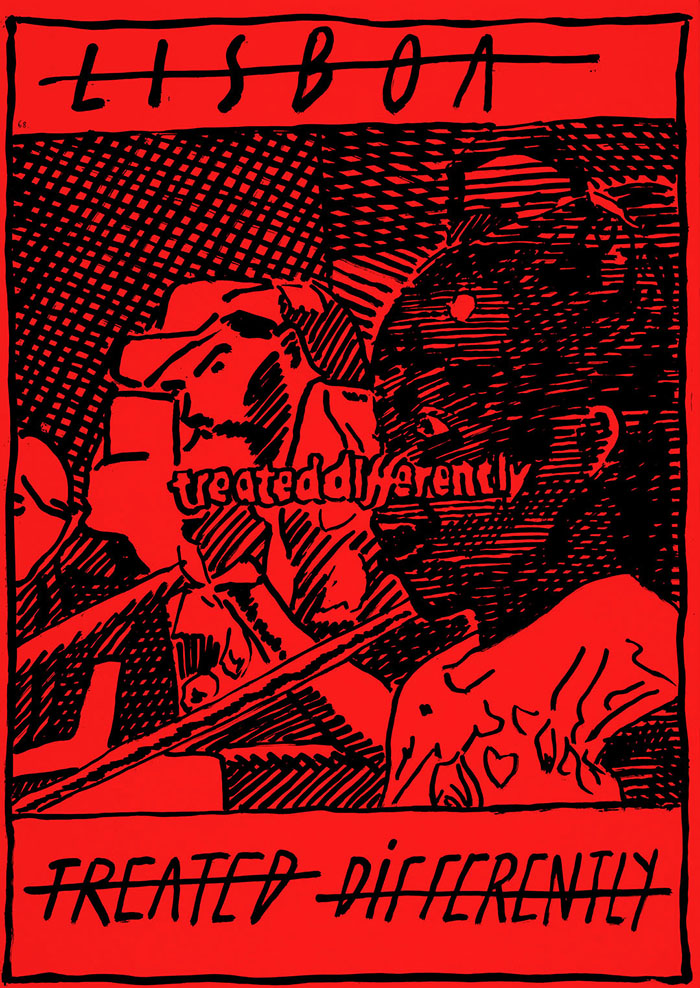
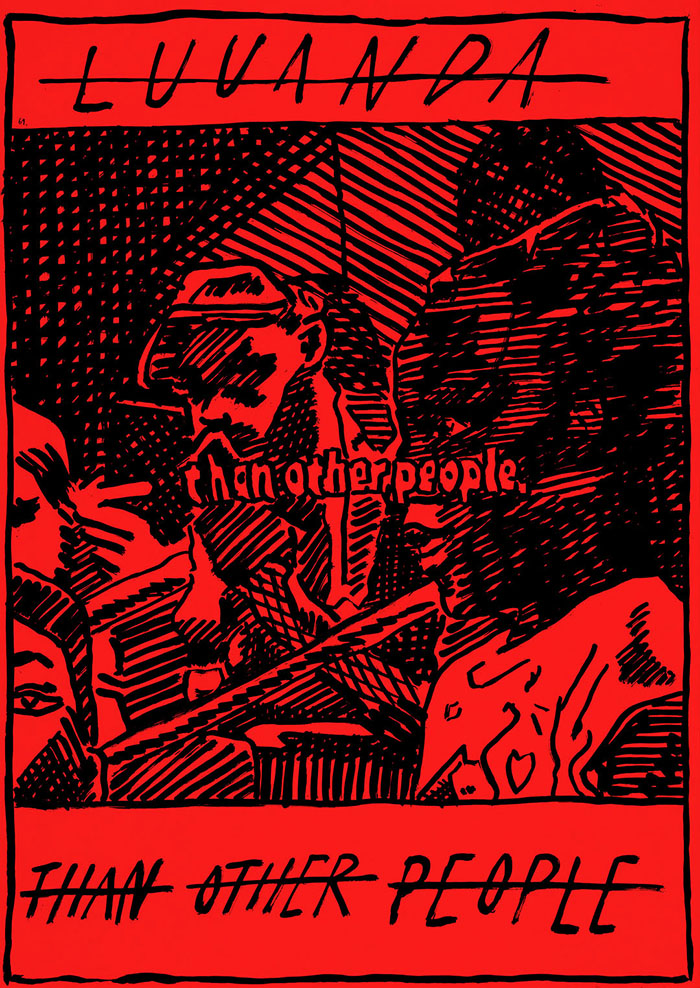
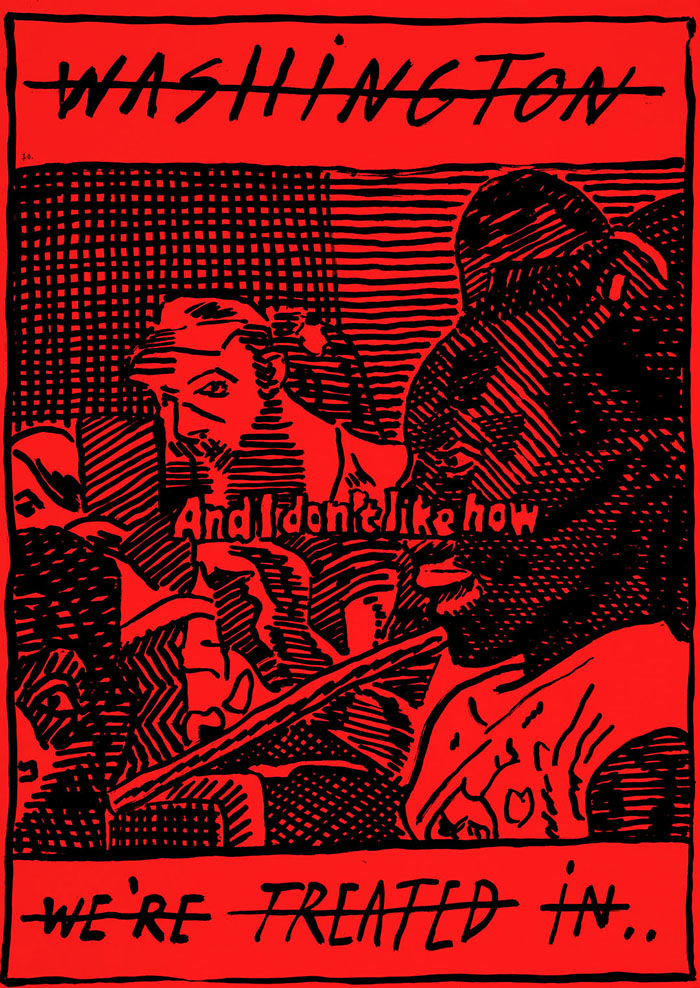
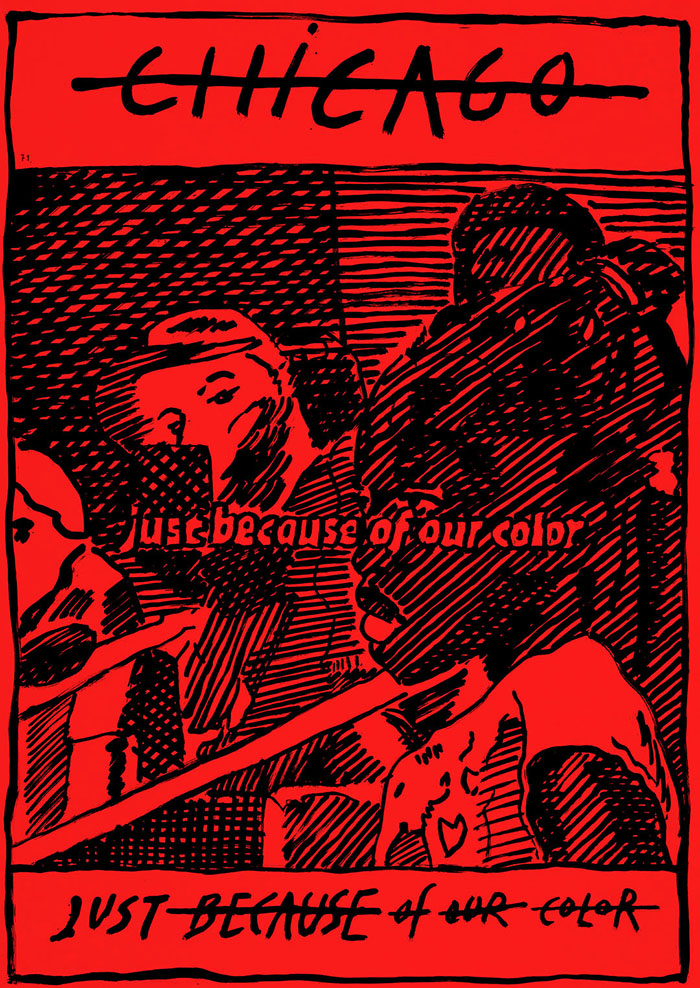
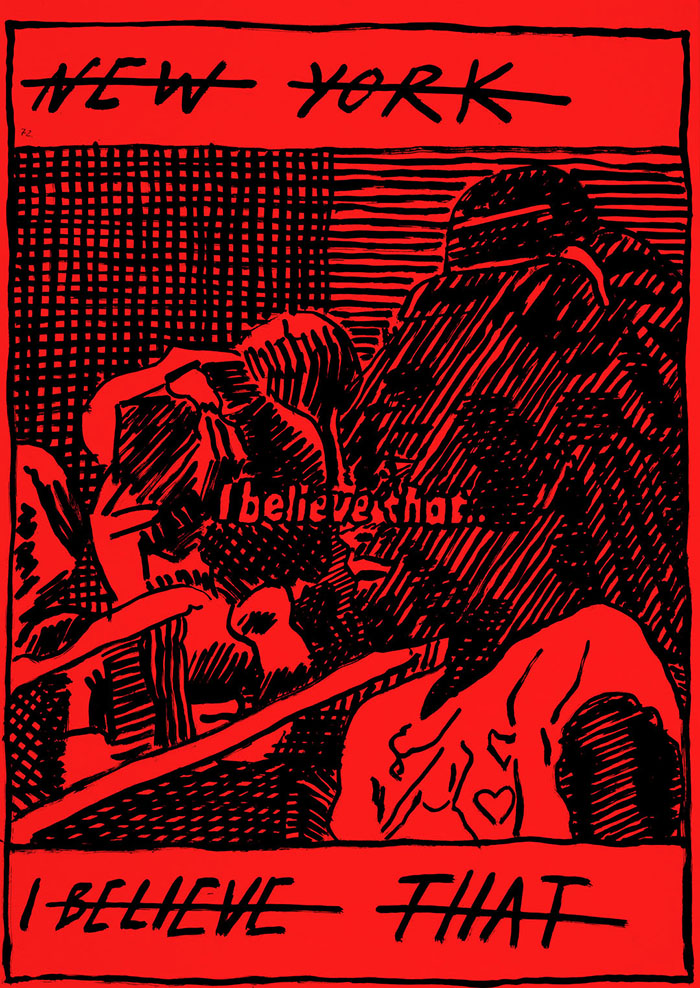
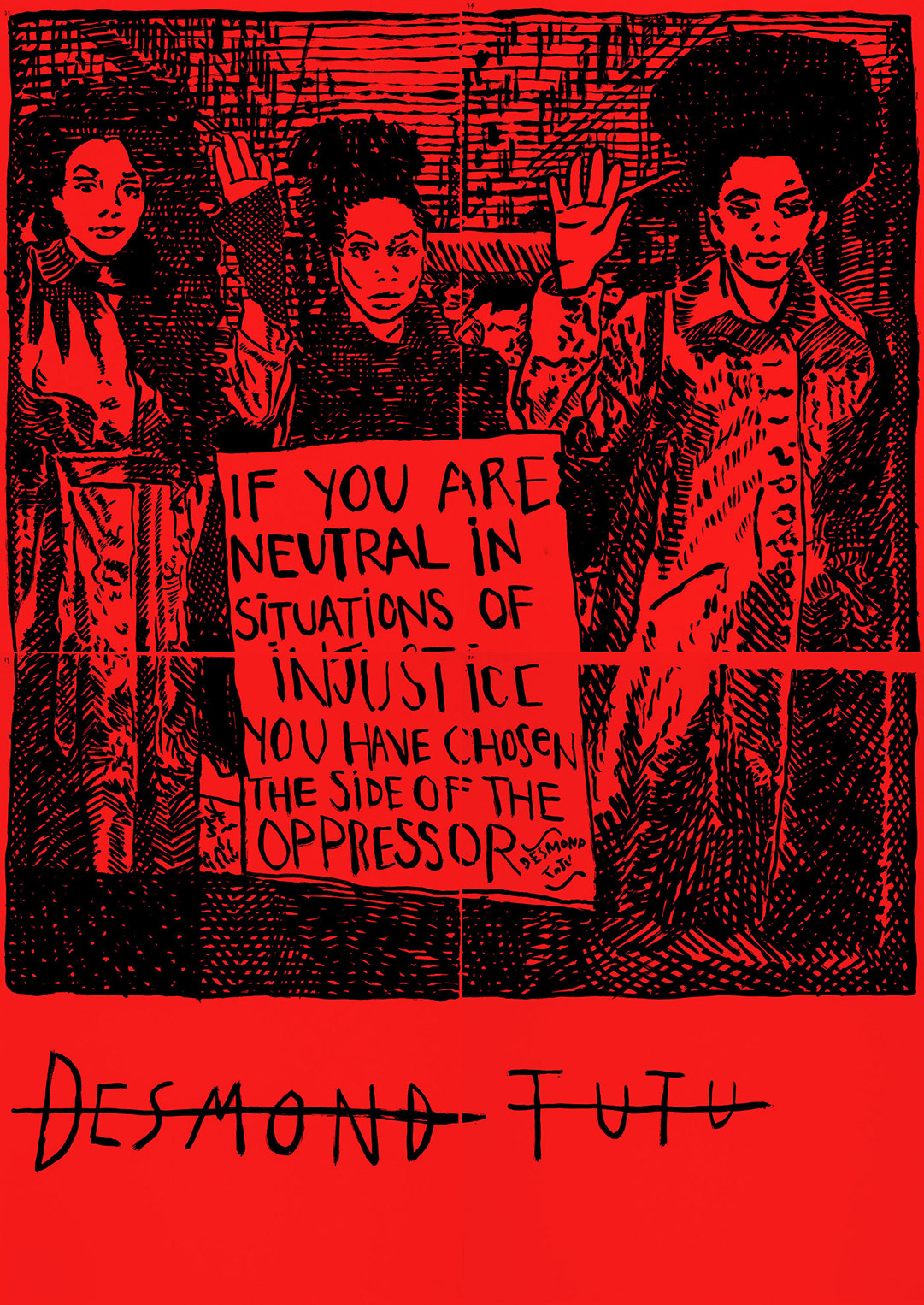
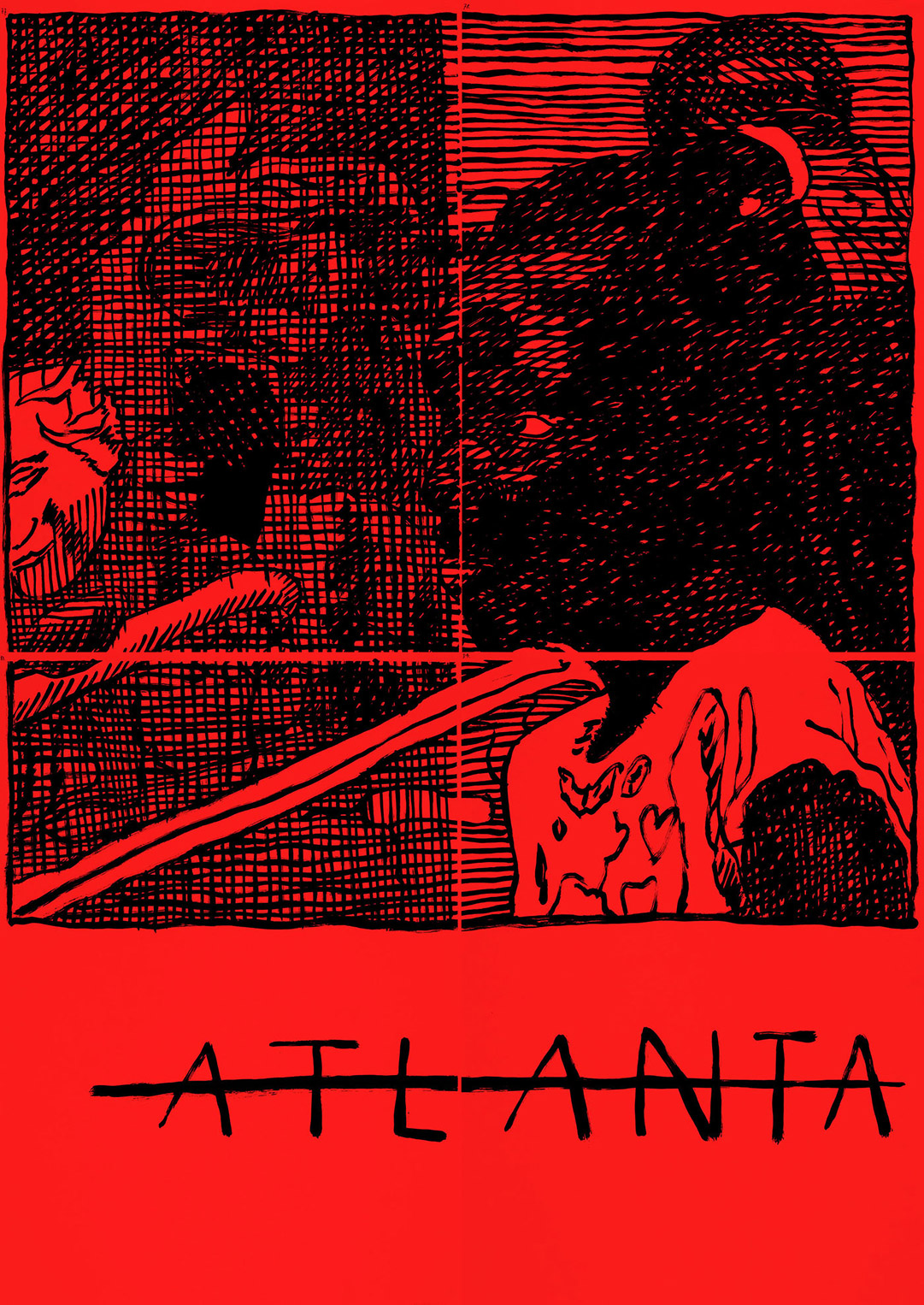
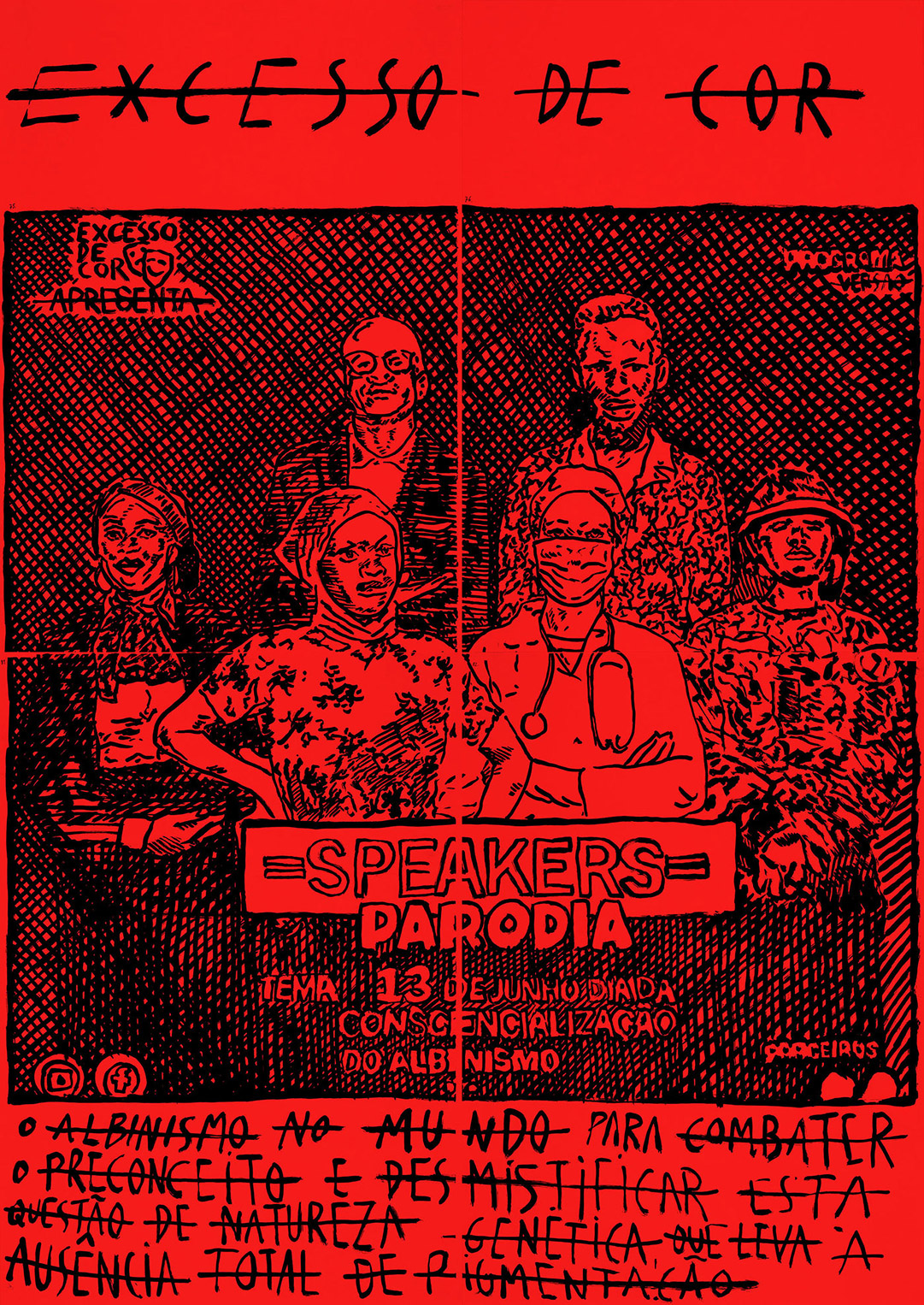
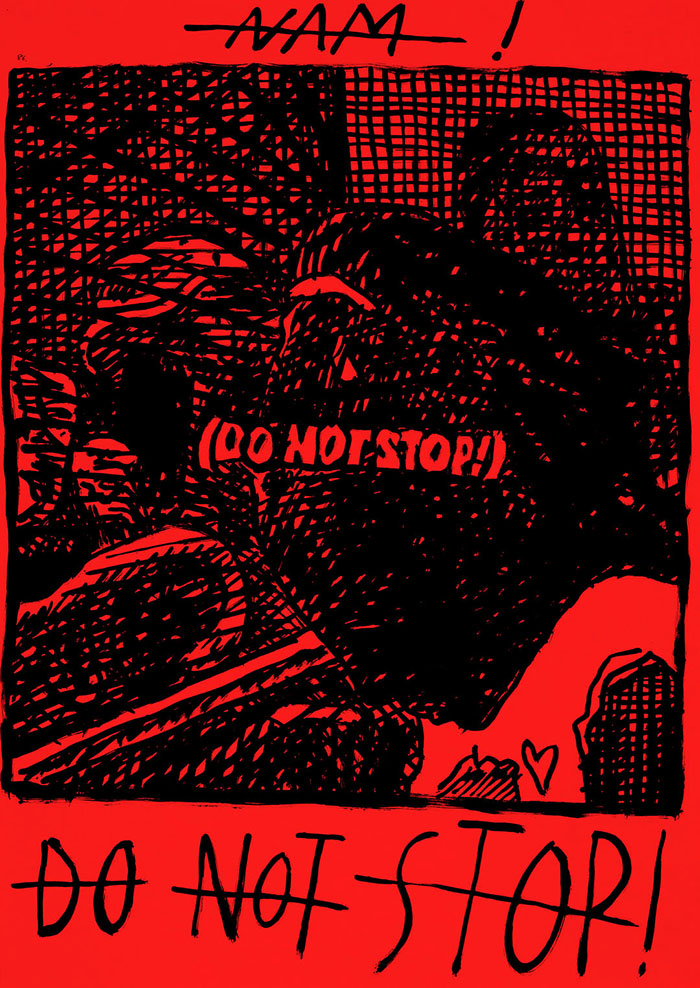
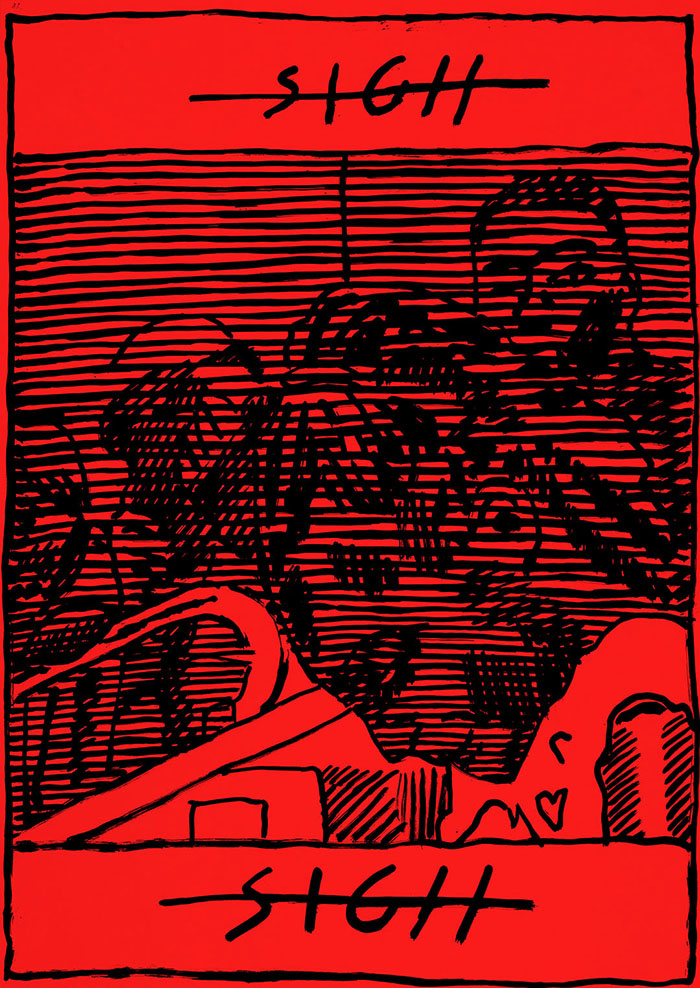
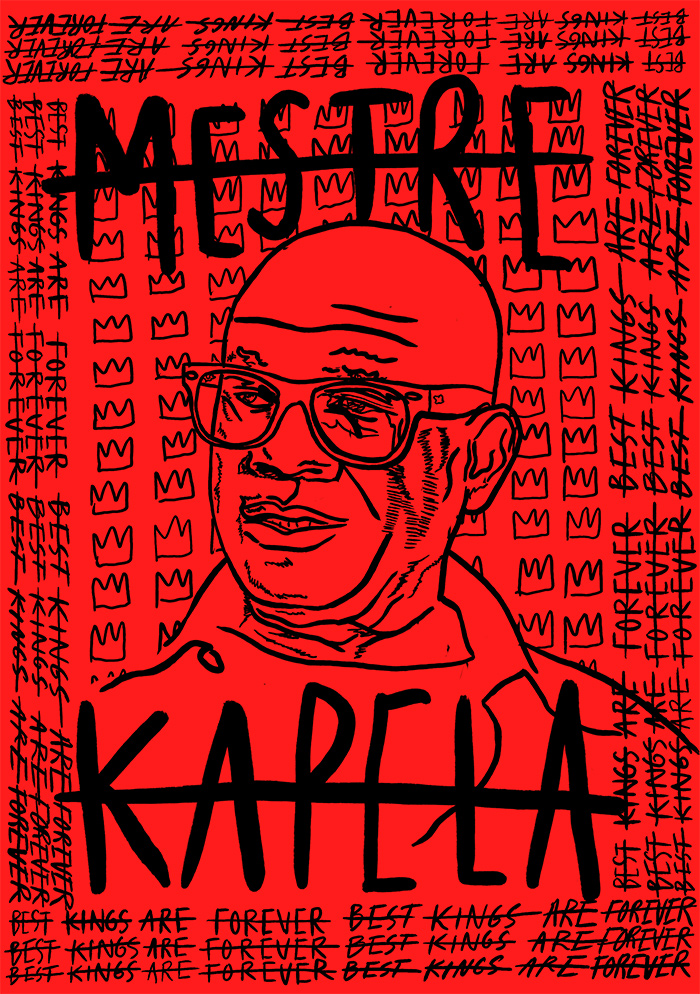
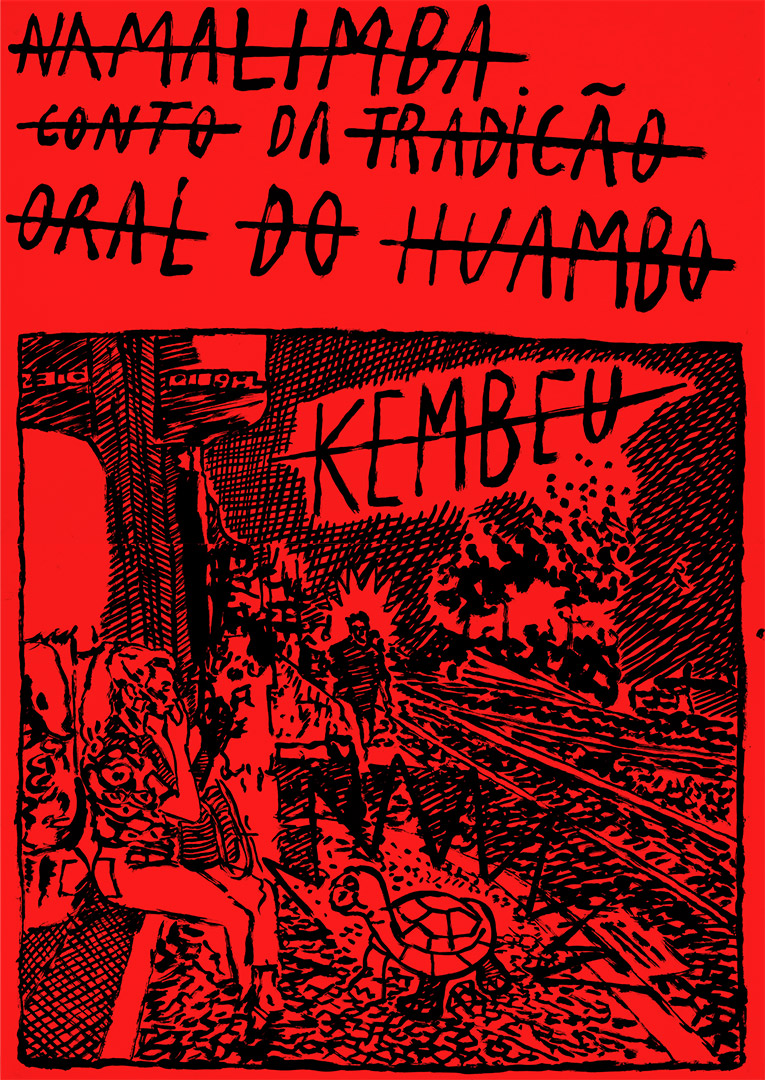
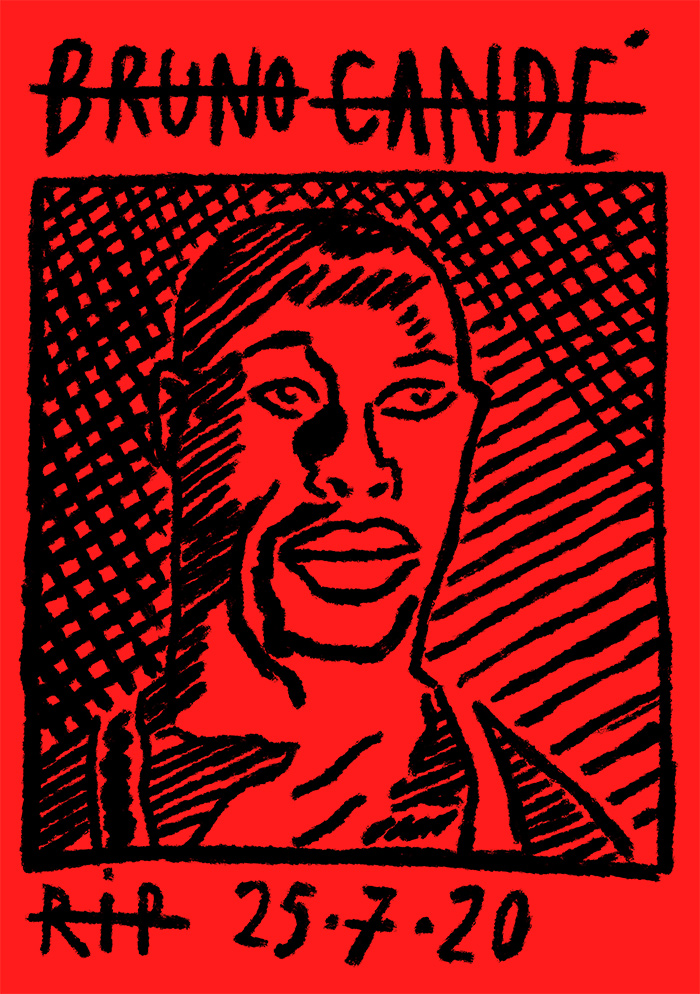
MAKA seeks to address the present reality in an instructive and consequent way in order to give voice to urgent and present issues and causes, fostering the dialogue that one wishes to build so it can resonate, elevate and honour the legacy and memory of all those who, like Bruno Candé, are still victims of crimes motivated by prejudice in the 21st century.
MAKA Lisboa is a project by Francisco Vidal and Namalimba Coelho. The performance originally, carried out within the scope of Festival Iminente and Underdogs Gallery, was restaged at maat in the context of the series "Untitled. Workshops with Artists" and the maat Mode 2020 programme.
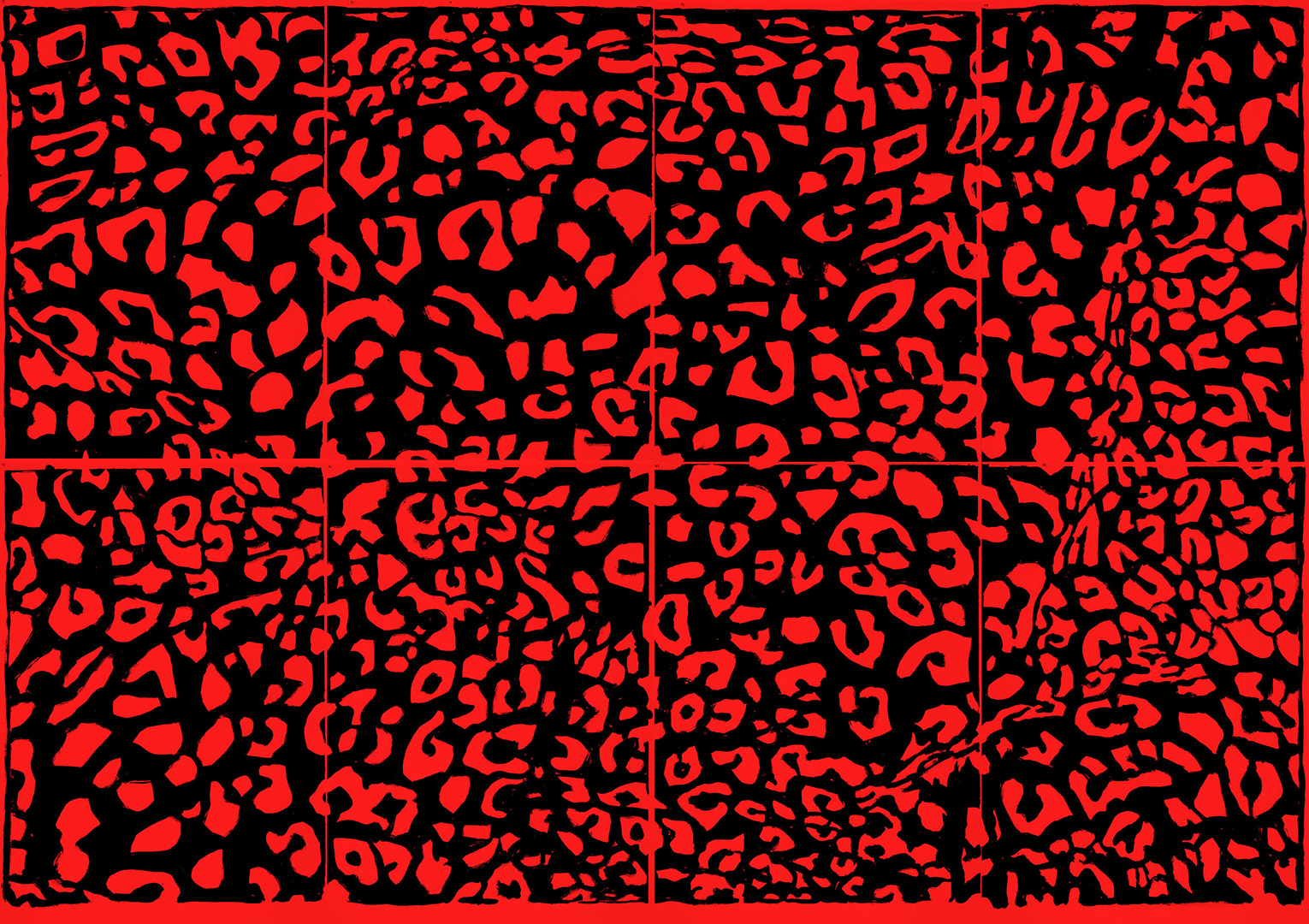
Name drop for the African Industrial Revolution is the title of the workshop that Francisco Vidal developed in the context of maat Mode 2020. Participants were invited to take part in a work in progress, a performance in which the artist draws portraits of the participants in an analogy to “The Artist is Present” (2010) by Marina Abramović. The work came about in 2014, when Francisco Vidal was teaching in Luanda and was forced to drew portraits on Xerox paper, due to the lack of drawing paper. The possibility of making copies rapidly combined with the academic notebook format opened new directions for the portrait as a useful tool for just social change.
With Untitled. Workshops with Artists the idea is to create a dialogue between artists, spectators and contemporary art. Within the scope of #thetruth, one of maat’s programmatic axes, artists set theoretical and practical challenges from a perspective of experimentation and knowledge sharing. Participants have contact with the artist’s work, research and production processes. After the workshop there’s a moment open to public participation, that can be a talk, a performance, a screening...


